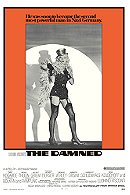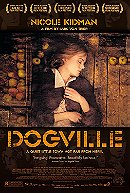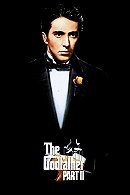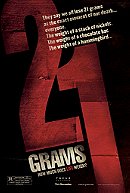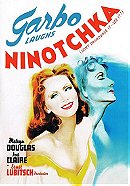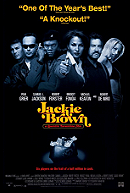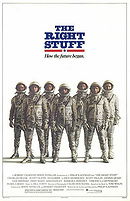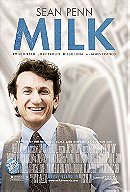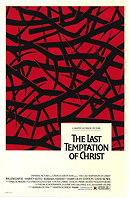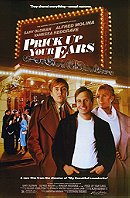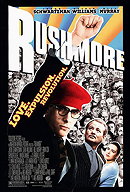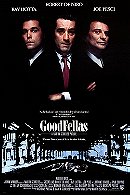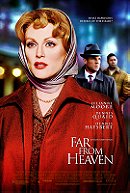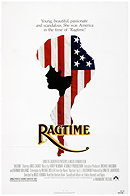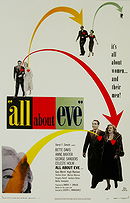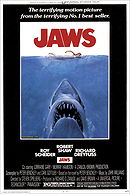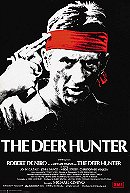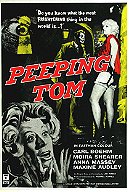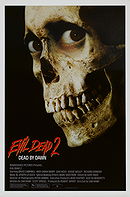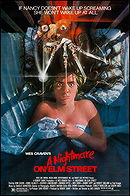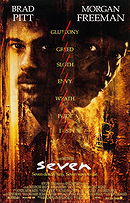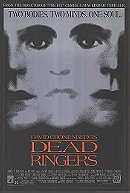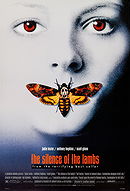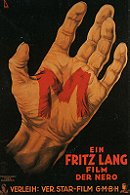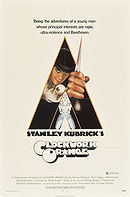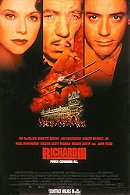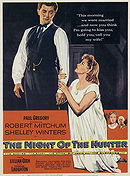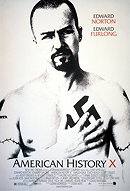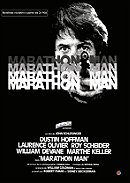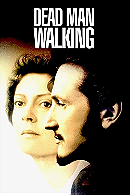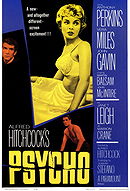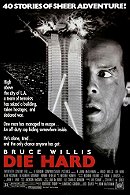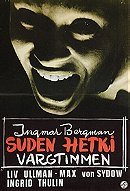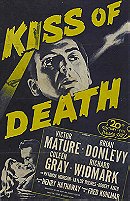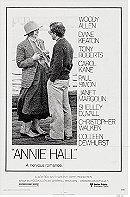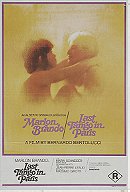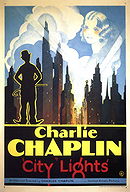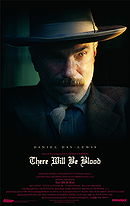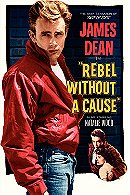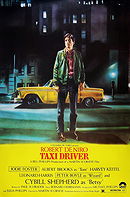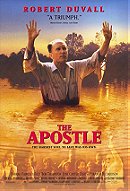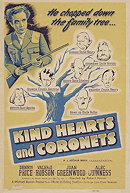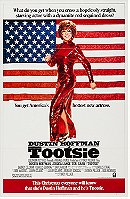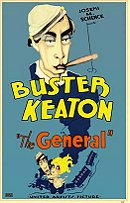100 Essential Male Film Performances
Sort by:
Showing 1-50 of 99
Decade:
Rating:
List Type:
 Add items to section
Add items to section
Life Support
These are the supporting turns that are ineradicable. Without these scene-stealers holding it all together on the sidelines, the leads of their respective films would be totally lost.
The Emigrants (1971)
Eddie Axberg
Troell’s epic, beautiful The Emigrants, based on Vilhelm Moberg’s classic novels, represents Scandinavian simplicity at its finest. Following a group of working class Swedes from the withering Smaland countryside to a supposed land of opportunity in turn-of-the-century Minnesota, the movie brutally recounts the hardships faced by immigrants in a way that is rarely captured on screen. Following his sister Kristina and her husband Karl-Oskar (Liv Ullmann and Max Von Sydow) to the States, Robert is a bit of a dreamer. He is too old to be living with his parents, and sees the treacherous ship ride across the Atlantic to be a rite of passage, a tool that will help him transition from a boy to a man who can support a family and take care of his sister as she has for him. He is an honest, non-flashy guy, one that is rarely seen anymore, actually: he values familial relationships, responsibility, staying together, being friends, and being helpful.
There is a genuine old-world charm to the actor’s sweet take on the character, and his purity and traditionalism never feel affected or false. Despite the film’s being nominated for several major Academy Awards (including Best Picture, Actress and Director), The Emigrants and it’s sequel, The New Land, are currently not available to DVD, and are even hard to find on VHS anymore (this classic cinema begs for the Criterion treatment—they had previously released the two films on Laserdisc). Troell’s films are intrinsic to understanding the experience of the Swedish immigrant, and Axberg’s performance is a rare glimpse into a type of character that we not only don’t see much anymore in modern film, but also into one that was infrequently there in the first place.
Troell’s epic, beautiful The Emigrants, based on Vilhelm Moberg’s classic novels, represents Scandinavian simplicity at its finest. Following a group of working class Swedes from the withering Smaland countryside to a supposed land of opportunity in turn-of-the-century Minnesota, the movie brutally recounts the hardships faced by immigrants in a way that is rarely captured on screen. Following his sister Kristina and her husband Karl-Oskar (Liv Ullmann and Max Von Sydow) to the States, Robert is a bit of a dreamer. He is too old to be living with his parents, and sees the treacherous ship ride across the Atlantic to be a rite of passage, a tool that will help him transition from a boy to a man who can support a family and take care of his sister as she has for him. He is an honest, non-flashy guy, one that is rarely seen anymore, actually: he values familial relationships, responsibility, staying together, being friends, and being helpful.
There is a genuine old-world charm to the actor’s sweet take on the character, and his purity and traditionalism never feel affected or false. Despite the film’s being nominated for several major Academy Awards (including Best Picture, Actress and Director), The Emigrants and it’s sequel, The New Land, are currently not available to DVD, and are even hard to find on VHS anymore (this classic cinema begs for the Criterion treatment—they had previously released the two films on Laserdisc). Troell’s films are intrinsic to understanding the experience of the Swedish immigrant, and Axberg’s performance is a rare glimpse into a type of character that we not only don’t see much anymore in modern film, but also into one that was infrequently there in the first place.
JxSxPx's rating:


The Damned (1969)
Helmut Berger
The performance of Helmut Berger in The Damned is frequently dismissed by cineasts as the overindulgence of his real-life lover, director Luchino Visconti. When your sugar daddy casts you in your first major film role as a cross-dressing, Nazi-collaborating pedophile who rapes his own mother (among other depravities), is he really being that generous? Perhaps, in a twisted and attention-getting manner.
Berger provides the most iconic image of Visconti’s long career with his entrance: dressed as Marlene Dietrich, he entertains his industrialist family at their estate as the Reichstag burns in Berlin (much to everyone’s shock and horror). If Berger did not follow these first moments of The Damned with a performance of some depth, however, it is doubtful his introductory Lola Lola would endure.
From The Blue Angel to the SS, Berger commits to his degenerate character without irony. That he can portray Martin as snippy, selfish and horribly immoral sans humor is but one strength of the performance within Visconti’s purposefully overwrought, grand soap opera. And Berger’s use of both feminine and masculine touchstones provides a complex look at gender identity, in an already-provocative film. If Visconti wishes to trace the downfall of a family from Weimer Republic into Nazi Germany, then Berger presents the perfect vessel in which to encapsulate this slide with his twisted, cranky Martin.
The performance of Helmut Berger in The Damned is frequently dismissed by cineasts as the overindulgence of his real-life lover, director Luchino Visconti. When your sugar daddy casts you in your first major film role as a cross-dressing, Nazi-collaborating pedophile who rapes his own mother (among other depravities), is he really being that generous? Perhaps, in a twisted and attention-getting manner.
Berger provides the most iconic image of Visconti’s long career with his entrance: dressed as Marlene Dietrich, he entertains his industrialist family at their estate as the Reichstag burns in Berlin (much to everyone’s shock and horror). If Berger did not follow these first moments of The Damned with a performance of some depth, however, it is doubtful his introductory Lola Lola would endure.
From The Blue Angel to the SS, Berger commits to his degenerate character without irony. That he can portray Martin as snippy, selfish and horribly immoral sans humor is but one strength of the performance within Visconti’s purposefully overwrought, grand soap opera. And Berger’s use of both feminine and masculine touchstones provides a complex look at gender identity, in an already-provocative film. If Visconti wishes to trace the downfall of a family from Weimer Republic into Nazi Germany, then Berger presents the perfect vessel in which to encapsulate this slide with his twisted, cranky Martin.
JxSxPx's rating:


Dogville (2003)
Paul Bettany
In von Trier’s Dogville, Bettany has an unenviable task, to play an “every man” who espouses morals and high-minded principals, but at the core is a sniveling, sheep-like coward. He gradually changes from a stumbling but right-headed, lovable town fixture (that you could just as easily see huggable Tom Hanks portraying) into the sort of cold, unfeeling monster that Rutger Hauer and Malcolm McDowell have made tidy livings from. And he does it without changing a thing about his character’s motivations or sense of self-righteousness, he does it naturally. Adrift on von Trier’s bare-bones sound stage, the actor does it without the benefits of sets, locations, or any props to speak of opposite a cast of heavies: legends Nicole Kidman, Lauren Bacall, Harriet Andersson, and Ben Gazzara are but a few of his co-stars. Clearly not a task for the faint of heart or for an amateur. Bettany delivers an assured performance, carefully modulating Tom’s descent from Thornton Wilderesque, plain-speaking authority to whimpering fool. It is a harrowing emotional journey that is as heartbreaking as it is reprehensible, in a movie that could easily devolve into a pedantic jeremiad against American society, but is instead stirring, deeply disturbing and provocative.
In von Trier’s Dogville, Bettany has an unenviable task, to play an “every man” who espouses morals and high-minded principals, but at the core is a sniveling, sheep-like coward. He gradually changes from a stumbling but right-headed, lovable town fixture (that you could just as easily see huggable Tom Hanks portraying) into the sort of cold, unfeeling monster that Rutger Hauer and Malcolm McDowell have made tidy livings from. And he does it without changing a thing about his character’s motivations or sense of self-righteousness, he does it naturally. Adrift on von Trier’s bare-bones sound stage, the actor does it without the benefits of sets, locations, or any props to speak of opposite a cast of heavies: legends Nicole Kidman, Lauren Bacall, Harriet Andersson, and Ben Gazzara are but a few of his co-stars. Clearly not a task for the faint of heart or for an amateur. Bettany delivers an assured performance, carefully modulating Tom’s descent from Thornton Wilderesque, plain-speaking authority to whimpering fool. It is a harrowing emotional journey that is as heartbreaking as it is reprehensible, in a movie that could easily devolve into a pedantic jeremiad against American society, but is instead stirring, deeply disturbing and provocative.
Ghost World (2001)
Steve Buscemi
Seymour is an obsessive collector out of touch with the modern world. When Buscemi’s Seymour utters the line “I can’t relate to 99% of humanity”, his role as the loveable loser type that he plays so well is instantly clear. He is defeated, resigned, and seething with bitterness, yet Buscemi plays him with a sincerity that makes the viewer wholly sympathetic and on his side. Seymour’s self-awareness mixed with a crippling fear/hatred of all those around him make him the ultimate Buscemi character role. Zwigoff’s Ghost World taps into the lives of people on the fringes of society. Their compulsions and affectations are at the root of who they are—when asked to list his top five interests, his first three are old-fashioned music genres (“traditional jazz, blues, and ragtime”)—and Seymour typifies a certain kind of outcast. It’s easy to imagine that in other hands this character could be reduced to a one-dimensional caricature, yet Buscemi makes him real. It’s in his small embarrassments and his small victories that Seymour becomes someone to root for. Buscemi brings it all to life and makes his biting sarcasm and misanthropic tendencies endearing with his understated charm.
Seymour is an obsessive collector out of touch with the modern world. When Buscemi’s Seymour utters the line “I can’t relate to 99% of humanity”, his role as the loveable loser type that he plays so well is instantly clear. He is defeated, resigned, and seething with bitterness, yet Buscemi plays him with a sincerity that makes the viewer wholly sympathetic and on his side. Seymour’s self-awareness mixed with a crippling fear/hatred of all those around him make him the ultimate Buscemi character role. Zwigoff’s Ghost World taps into the lives of people on the fringes of society. Their compulsions and affectations are at the root of who they are—when asked to list his top five interests, his first three are old-fashioned music genres (“traditional jazz, blues, and ragtime”)—and Seymour typifies a certain kind of outcast. It’s easy to imagine that in other hands this character could be reduced to a one-dimensional caricature, yet Buscemi makes him real. It’s in his small embarrassments and his small victories that Seymour becomes someone to root for. Buscemi brings it all to life and makes his biting sarcasm and misanthropic tendencies endearing with his understated charm.
JxSxPx's rating:


The Godfather: Part II (1974)
John Cazale
Poor Fredo. The fragile brother. The shy, sad little boy in the shadow of his brasher, bolder brothers Sonny and Michael, stuck in the middle and given less to do than adopted sibling Tom Hagen. As the broken center of the Corleone family, he’s the classic tragic hero without a lick of courage in his cowering frame—and as essayed with grace and grand humility by Cazale, Fredo is also the final nail in the mafia clan’s coffin. You can see the defeat registered across this often unsung ‘70s icon’s angular face, a look that says he never fit in, not even when he tried. In loyalty, he earned ridicule, not respect. In betrayal, he earned the classic kiss off of death. While his time on the planet was far too short, Cazale manufactured his continuing cinematic legacy with this unusual and unforgettable role. Dying of cancer in the late ‘70s after a blazing character actor career, Cazale almost seemed destined to be Fredo in real life as well—a wannabe star that had to settle for an afterlife as movie myth. It seems only fitting.
Poor Fredo. The fragile brother. The shy, sad little boy in the shadow of his brasher, bolder brothers Sonny and Michael, stuck in the middle and given less to do than adopted sibling Tom Hagen. As the broken center of the Corleone family, he’s the classic tragic hero without a lick of courage in his cowering frame—and as essayed with grace and grand humility by Cazale, Fredo is also the final nail in the mafia clan’s coffin. You can see the defeat registered across this often unsung ‘70s icon’s angular face, a look that says he never fit in, not even when he tried. In loyalty, he earned ridicule, not respect. In betrayal, he earned the classic kiss off of death. While his time on the planet was far too short, Cazale manufactured his continuing cinematic legacy with this unusual and unforgettable role. Dying of cancer in the late ‘70s after a blazing character actor career, Cazale almost seemed destined to be Fredo in real life as well—a wannabe star that had to settle for an afterlife as movie myth. It seems only fitting.
JxSxPx's rating:


Benicio del Toro
Benecio Del Toro is one of those actors that can wear gravitas as a cloak, manipulating its power for his own secret purposes. As the audience, we aren’t stifled by this but rather mesmerized by it in quite the same way as we were in his Oscar winning performance in Stephen Soderbergh’s layered Traffic. Inarritu’s 21 Grams utilizes a jagged rather than linear story structure, where we are fed the parts of the story gradually. When pieced together, these fragmented shards form the following narrative: Paul Rivers (Sean Penn) is a dying mathematician who received a heart from recovering drug addict Christina Peck’s (Naomi Watts) husband, who was inexplicably killed in a hit run.
Where Del Toro fits in to the story, as reborn Christian and former criminal Jack Jordan is in his rather shocking role of responsibility in the crash that killed Christina’s husband. Del Toro’s Jack moves through the film as if underwater, sometimes sluggish, sometimes weary but always searching, trying desperately to do the right thing. His tirelessly devoted wife Marianne (Melissa Leo) is his biggest advocate helping him and convincing him for a short while to forget the accident took place, to hide it, to cover it up, for their family. As the tormented Jack, wrestling with the misdeeds of his past and present amidst a volatile relationship with God, Del Toro’s impressive, inspiring work garnered him an Academy Award nomination and much-deserved critical accolades; a fabulous performance among a growing body of distinguished work that seems to get stronger and stronger with age.
Benecio Del Toro is one of those actors that can wear gravitas as a cloak, manipulating its power for his own secret purposes. As the audience, we aren’t stifled by this but rather mesmerized by it in quite the same way as we were in his Oscar winning performance in Stephen Soderbergh’s layered Traffic. Inarritu’s 21 Grams utilizes a jagged rather than linear story structure, where we are fed the parts of the story gradually. When pieced together, these fragmented shards form the following narrative: Paul Rivers (Sean Penn) is a dying mathematician who received a heart from recovering drug addict Christina Peck’s (Naomi Watts) husband, who was inexplicably killed in a hit run.
Where Del Toro fits in to the story, as reborn Christian and former criminal Jack Jordan is in his rather shocking role of responsibility in the crash that killed Christina’s husband. Del Toro’s Jack moves through the film as if underwater, sometimes sluggish, sometimes weary but always searching, trying desperately to do the right thing. His tirelessly devoted wife Marianne (Melissa Leo) is his biggest advocate helping him and convincing him for a short while to forget the accident took place, to hide it, to cover it up, for their family. As the tormented Jack, wrestling with the misdeeds of his past and present amidst a volatile relationship with God, Del Toro’s impressive, inspiring work garnered him an Academy Award nomination and much-deserved critical accolades; a fabulous performance among a growing body of distinguished work that seems to get stronger and stronger with age.
JxSxPx's rating:


Ninotchka (1939)
Melvyn Douglas
In the years before World War II, wedged between the Busby Berkeley musicals and the Marx Brothers romps, there were the quick-witted comedies like The Philadelphia Story with James Stewart, Cary Grant and Kate Hepburn, and The Thin Man with Myrna Loy and William Powell. One of the last and most loved of that period was 1939’s Ninotchka starring Greta Garbo as the by-the-book Bolshevik from Russia who arrives in Paris to negotiate possession of an exiled grand duchess’ jewels. Douglas, playing the duchess’ representative, falls for the staid Ninotchka. “Must you flirt?” she asks dryly. “Well, I don’t have to but I find it natural,” he replies. “Suppress it,” she acidly returns. And so it continues, as Garbo sets ‘em up and Melvyn Douglas knocks ‘em down, line by clever line. Douglas never misses a beat with timing no doubt honed during several years of stage work prior to his long, illustrious film career. In addition to a Tony award and an Emmy, Douglas went on to win two Oscars: one for the Paul Newman classic Hud, and the last for his supporting role in Hal Ashby’s Being There. Still, it would be his stalwart wooing of Garbo in a classic film that would delight audiences around the world, on the eve of a tragic war.
In the years before World War II, wedged between the Busby Berkeley musicals and the Marx Brothers romps, there were the quick-witted comedies like The Philadelphia Story with James Stewart, Cary Grant and Kate Hepburn, and The Thin Man with Myrna Loy and William Powell. One of the last and most loved of that period was 1939’s Ninotchka starring Greta Garbo as the by-the-book Bolshevik from Russia who arrives in Paris to negotiate possession of an exiled grand duchess’ jewels. Douglas, playing the duchess’ representative, falls for the staid Ninotchka. “Must you flirt?” she asks dryly. “Well, I don’t have to but I find it natural,” he replies. “Suppress it,” she acidly returns. And so it continues, as Garbo sets ‘em up and Melvyn Douglas knocks ‘em down, line by clever line. Douglas never misses a beat with timing no doubt honed during several years of stage work prior to his long, illustrious film career. In addition to a Tony award and an Emmy, Douglas went on to win two Oscars: one for the Paul Newman classic Hud, and the last for his supporting role in Hal Ashby’s Being There. Still, it would be his stalwart wooing of Garbo in a classic film that would delight audiences around the world, on the eve of a tragic war.
JxSxPx's rating:


Jackie Brown (1997)
Robert Forster
For all of the praise lavished upon Tarantino for his directing, writing and encyclopedic knowledge of all things cinema, perhaps not enough is made of his absolutely note-perfect casting. Aside from Woody Allen, no other modern American filmmaker continually displays such a knack for finding the ideal actor for any given character part, for elevating an underrated or no-longer-fashionable performer out of the ghetto of indistinct appearances in indistinct films to a role that feels tailor made for their neglected talents. Forster, veteran of seemingly countless action flicks and cop shows throughout the ‘70s and ‘80s, is not the star of Jackie Brown (that would be Pam Grier, getting a Tarantino-style career revival of her own), but he is very much its quiet emotional center. As the weary bail bondsman Max Cherry, Forster’s genial schoolboy crush on Grier’s titular heroine turns a twisty caper into an unexpectedly sweet meditation on aging and the possibility of romance in the face of diminished expectations. A knowing riff on Forster’s everyman anonymity (he’s one of those actors that you know you’ve seen before, but can never quite identify), Tarantino has Forster naturally inhabit Max in a way that a more widely recognizable “star” could never have been able to, creating one the most emotionally resonant characters in the entire Tarantino canon in the process.
For all of the praise lavished upon Tarantino for his directing, writing and encyclopedic knowledge of all things cinema, perhaps not enough is made of his absolutely note-perfect casting. Aside from Woody Allen, no other modern American filmmaker continually displays such a knack for finding the ideal actor for any given character part, for elevating an underrated or no-longer-fashionable performer out of the ghetto of indistinct appearances in indistinct films to a role that feels tailor made for their neglected talents. Forster, veteran of seemingly countless action flicks and cop shows throughout the ‘70s and ‘80s, is not the star of Jackie Brown (that would be Pam Grier, getting a Tarantino-style career revival of her own), but he is very much its quiet emotional center. As the weary bail bondsman Max Cherry, Forster’s genial schoolboy crush on Grier’s titular heroine turns a twisty caper into an unexpectedly sweet meditation on aging and the possibility of romance in the face of diminished expectations. A knowing riff on Forster’s everyman anonymity (he’s one of those actors that you know you’ve seen before, but can never quite identify), Tarantino has Forster naturally inhabit Max in a way that a more widely recognizable “star” could never have been able to, creating one the most emotionally resonant characters in the entire Tarantino canon in the process.
JxSxPx's rating:


Ed Harris
Harris’s performance as John Glenn in The Right Stuff is one of the finest supporting turns of the ‘80s. Harris has always been an interesting and dynamic character actor, and in the mold Christopher Walken, Michael Caine or his Stuff co-star Sam Shepard, Harris has the unique ability to turn out a strong performance in even the most baneful or overloaded of films. But when Harris has a part in a strong, meaty film like Kaufman’s, he simply shines. Harris is John Glenn, the first man to orbit the Earth, with a gleam of pride and glory in his laser-blue eyes. Harris’s Glenn is the ultimate Boy Scout, a true believer in the space program, a proper all-American who believes in what he’s doing without the slightest reservation. He immerses himself in the role, employing the firm, open grin of a superstar and the wide, believing, eager eyes of an innocent. It is a magnificent paradox. One would have expected Harris to play Glenn against the man’s legend, to deconstruct him or attempt to reveal his dark side.
Instead, Harris plays Glenn in strict accordance with the man’s public legend as a true believing patriot. In one of the film’s best scenes, Glenn berates his fellow astronauts for their wanton carousing and womanizing. In the hands of a less capable actor, this scene would have served to align us against Glenn, to position him as a sort of authority for us to distrust and renounce. But by playing Glenn as a super patriotic believer in the space program, Harris makes even the most disenchanted and cynical viewers believe in the righteousness of the American space program and long for its return to glory.
Harris’s performance as John Glenn in The Right Stuff is one of the finest supporting turns of the ‘80s. Harris has always been an interesting and dynamic character actor, and in the mold Christopher Walken, Michael Caine or his Stuff co-star Sam Shepard, Harris has the unique ability to turn out a strong performance in even the most baneful or overloaded of films. But when Harris has a part in a strong, meaty film like Kaufman’s, he simply shines. Harris is John Glenn, the first man to orbit the Earth, with a gleam of pride and glory in his laser-blue eyes. Harris’s Glenn is the ultimate Boy Scout, a true believer in the space program, a proper all-American who believes in what he’s doing without the slightest reservation. He immerses himself in the role, employing the firm, open grin of a superstar and the wide, believing, eager eyes of an innocent. It is a magnificent paradox. One would have expected Harris to play Glenn against the man’s legend, to deconstruct him or attempt to reveal his dark side.
Instead, Harris plays Glenn in strict accordance with the man’s public legend as a true believing patriot. In one of the film’s best scenes, Glenn berates his fellow astronauts for their wanton carousing and womanizing. In the hands of a less capable actor, this scene would have served to align us against Glenn, to position him as a sort of authority for us to distrust and renounce. But by playing Glenn as a super patriotic believer in the space program, Harris makes even the most disenchanted and cynical viewers believe in the righteousness of the American space program and long for its return to glory.
JxSxPx's rating:


Milk (2008)
Emile Hirsch
Milk did what many previous films have failed to do: he took a real-life person and was able to present an authentic take on his spirit and that of the people around him without having to resort to cliché or stock storytelling techniques. While Sean Penn has deservedly gotten the most praise for his role as the titular Harvey Milk, it was Emile Hirsch’s Cleve Jones that flew in the face of cinematic convention, as far as “gay” characters go. Cleve is a hero to a movement, but Hirsch and Van Sant keenly also shed light on the many facets of his personality: he can be swishy, sexual, funny, fierce and strong. Our introduction to Cleve reveals a young, cocky, and amusing transplant to the San Francisco area. His very energy and his vibrancy make a bracing impression on Milk, and their friendship evolves into an intimate, intellectual relationship that has its eye set on the future of the gay rights movement. Hirsch imbues Cleve with pure effervescence, and a scrappy optimism that makes him seem unstoppable. One of the more moving moments in the entire film centers on Cleve’s mobilization of the larger San Francisco community in reaction to Harvey’s assassination. He is fueled by anger and sadness, but also by the need to celebrate Harvey’s life. Hirsch’s ease in making the audience feel some measure of his feeling without any cheap, sentimental tricks stands as one of the most affecting moments in recent film history, and one of the finest heterosexual interpretations of homosexuality.
Milk did what many previous films have failed to do: he took a real-life person and was able to present an authentic take on his spirit and that of the people around him without having to resort to cliché or stock storytelling techniques. While Sean Penn has deservedly gotten the most praise for his role as the titular Harvey Milk, it was Emile Hirsch’s Cleve Jones that flew in the face of cinematic convention, as far as “gay” characters go. Cleve is a hero to a movement, but Hirsch and Van Sant keenly also shed light on the many facets of his personality: he can be swishy, sexual, funny, fierce and strong. Our introduction to Cleve reveals a young, cocky, and amusing transplant to the San Francisco area. His very energy and his vibrancy make a bracing impression on Milk, and their friendship evolves into an intimate, intellectual relationship that has its eye set on the future of the gay rights movement. Hirsch imbues Cleve with pure effervescence, and a scrappy optimism that makes him seem unstoppable. One of the more moving moments in the entire film centers on Cleve’s mobilization of the larger San Francisco community in reaction to Harvey’s assassination. He is fueled by anger and sadness, but also by the need to celebrate Harvey’s life. Hirsch’s ease in making the audience feel some measure of his feeling without any cheap, sentimental tricks stands as one of the most affecting moments in recent film history, and one of the finest heterosexual interpretations of homosexuality.
JxSxPx's rating:


Harvey Keitel
How does an actor known for playing mob operatives and punks depict the man who betrays Jesus Christ? By making Judas a goodfella. And it works. When we first meet Judas, threatening Jesus and jumping Romans in the street, Keitel portrays him with a little of the pimp he plays in Taxi Driver. After becoming a convert, Judas promises Jesus: “But if you stray this much from the path, I’ll kill you”. Keitel, swaggering a bit in his robe and sandals, holds up his hand and pinches his thumb and forefinger together for emphasis. His Judas is always grounded in the literal. Once Jesus has won Judas’s trust, Keitel plays the right-hand man as the loyal, but slightly dim capo: “Every day you have a different plan”, he half whines in frustration when Jesus tells him he must be crucified. Keitel’s worldly, prosaic, yet doggedly loyal Judas is the perfect foil for Willem Dafoe’s philosophical, naïve Jesus, whose miracles and parables Judas is often at a loss to understand.
While Scorsese can’t help the occasional scene set up as a tableau from Renaissance depictions of the passion, naturalistic acting carries the film, with Biblical speech converted to modern vernacular. In one of the film’s key scenes, when Judas agrees to betray Jesus to the Romans, Keitel works in complete concert with the camera. In a close-up with Dafoe, Judas in the foreground begins the scene slightly out of focus, fighting back tears. He exhales, his face relaxes, and he composes himself as the camera brings him into focus with Jesus. It’s a literal and figurative moment of clarity, and no scene in the film better captures Temptation‘s goal of stressing the human side of the epic events of the passion.
How does an actor known for playing mob operatives and punks depict the man who betrays Jesus Christ? By making Judas a goodfella. And it works. When we first meet Judas, threatening Jesus and jumping Romans in the street, Keitel portrays him with a little of the pimp he plays in Taxi Driver. After becoming a convert, Judas promises Jesus: “But if you stray this much from the path, I’ll kill you”. Keitel, swaggering a bit in his robe and sandals, holds up his hand and pinches his thumb and forefinger together for emphasis. His Judas is always grounded in the literal. Once Jesus has won Judas’s trust, Keitel plays the right-hand man as the loyal, but slightly dim capo: “Every day you have a different plan”, he half whines in frustration when Jesus tells him he must be crucified. Keitel’s worldly, prosaic, yet doggedly loyal Judas is the perfect foil for Willem Dafoe’s philosophical, naïve Jesus, whose miracles and parables Judas is often at a loss to understand.
While Scorsese can’t help the occasional scene set up as a tableau from Renaissance depictions of the passion, naturalistic acting carries the film, with Biblical speech converted to modern vernacular. In one of the film’s key scenes, when Judas agrees to betray Jesus to the Romans, Keitel works in complete concert with the camera. In a close-up with Dafoe, Judas in the foreground begins the scene slightly out of focus, fighting back tears. He exhales, his face relaxes, and he composes himself as the camera brings him into focus with Jesus. It’s a literal and figurative moment of clarity, and no scene in the film better captures Temptation‘s goal of stressing the human side of the epic events of the passion.
JxSxPx's rating:


Alfred Molina
This biopic of writer Joe Orton earns miles from Gary Oldman’s natural performance as the fallen playwright. The young Orton had hardly a literary inclination until meeting Alfred Molina’s Ken, a lit junkie with a pile of rejected novels, when at acting school. At first the two wrote as a team, and then Joe began casually scripting edgy crowd-pleasers for the stage. Thus, Ken’s tutelage of Joe skyrockets beyond its mentor, while Ken’s mentorship to Joe (of another kind) doesn’t fly so well.
The two gay men converge like magnets, with Ken as the putative personal assistant to Joe, who desires “playtime” outside the relationship. He takes to cruising for men with ease, while Ken awkwardly tries to keep up. The homo-repressed 1960s Britain makes the film an early, doomed entry in queer cinema—about which we shouldn’t gripe since it is better than no queer cine at all. In this form, Ken embodies the obsessive half, whose purpose hardly extends beyond supporting his mate’s profession. Next to the happening Joe, Molina’s Ken—bald by his late 20s—is a nervy schlub: think the late Telly Savalas doing J. Alfred Prufrock. Molina stares down all clichés, veering away from effeminate tones when they would be most convenient and avoids trapping Ken into a brooding madman, and more than holds his own next to an astonishing Oldman. His “suffering wife” or “other half” is far more humorous than bitchy: he shuffles like a biddy when feeling slighted though bellows with Orton at the good times. Regretfully, Ken’s sickness was real, and he had to down pills every day to stay even. It is this combination of mental illness and self-diagnoses that leads, in part, to the end both of their lives, at Ken’s frenzied hands.
This biopic of writer Joe Orton earns miles from Gary Oldman’s natural performance as the fallen playwright. The young Orton had hardly a literary inclination until meeting Alfred Molina’s Ken, a lit junkie with a pile of rejected novels, when at acting school. At first the two wrote as a team, and then Joe began casually scripting edgy crowd-pleasers for the stage. Thus, Ken’s tutelage of Joe skyrockets beyond its mentor, while Ken’s mentorship to Joe (of another kind) doesn’t fly so well.
The two gay men converge like magnets, with Ken as the putative personal assistant to Joe, who desires “playtime” outside the relationship. He takes to cruising for men with ease, while Ken awkwardly tries to keep up. The homo-repressed 1960s Britain makes the film an early, doomed entry in queer cinema—about which we shouldn’t gripe since it is better than no queer cine at all. In this form, Ken embodies the obsessive half, whose purpose hardly extends beyond supporting his mate’s profession. Next to the happening Joe, Molina’s Ken—bald by his late 20s—is a nervy schlub: think the late Telly Savalas doing J. Alfred Prufrock. Molina stares down all clichés, veering away from effeminate tones when they would be most convenient and avoids trapping Ken into a brooding madman, and more than holds his own next to an astonishing Oldman. His “suffering wife” or “other half” is far more humorous than bitchy: he shuffles like a biddy when feeling slighted though bellows with Orton at the good times. Regretfully, Ken’s sickness was real, and he had to down pills every day to stay even. It is this combination of mental illness and self-diagnoses that leads, in part, to the end both of their lives, at Ken’s frenzied hands.
Rushmore (1998)
Bill Murray
Where did Bill Murray have to go to find his Herman Blume? A rich industrialist, with a wife who despises him and sons who horrify him, he’s desperately in need of a friend. That he looks to Max Fischer (Jason Schwartzman), a high school student who manages to overachieve and underachieve simultaneously, for cues on how to live speaks volumes. They’re both too smart and too self-assured for their own good; it only seems to alienate them and Murray’s tiny winces clue us in to Blume’s sagging unhappiness. Is there a funnier expression of late middle-age discontentment than Murray climbing a high dive in front of his party guests, with a drink and a cigarette, cannon-balling into the pool and sinking himself to the bottom, pausing to swallow a silent, underwater scream? But around Max, Blume beams. Murray makes his glee so contagious that at times it has the ability to pull you up out of your seat. Rushmore re-introduced Murray to an audience that had largely begun to forget about him. And while he has had memorable roles before and since, Anderson’s Rushmore may be the first time that every aspect of a production was on his elevated level. He seems to almost have a direct line of communication with the camera, so that he makes the distance between the viewer and the screen almost disappear.
Where did Bill Murray have to go to find his Herman Blume? A rich industrialist, with a wife who despises him and sons who horrify him, he’s desperately in need of a friend. That he looks to Max Fischer (Jason Schwartzman), a high school student who manages to overachieve and underachieve simultaneously, for cues on how to live speaks volumes. They’re both too smart and too self-assured for their own good; it only seems to alienate them and Murray’s tiny winces clue us in to Blume’s sagging unhappiness. Is there a funnier expression of late middle-age discontentment than Murray climbing a high dive in front of his party guests, with a drink and a cigarette, cannon-balling into the pool and sinking himself to the bottom, pausing to swallow a silent, underwater scream? But around Max, Blume beams. Murray makes his glee so contagious that at times it has the ability to pull you up out of your seat. Rushmore re-introduced Murray to an audience that had largely begun to forget about him. And while he has had memorable roles before and since, Anderson’s Rushmore may be the first time that every aspect of a production was on his elevated level. He seems to almost have a direct line of communication with the camera, so that he makes the distance between the viewer and the screen almost disappear.
JxSxPx's rating:


Nick Nolte
Nick Nolte has so little screen time in Olivier Assayas’s Clean (2004) that it could be relatively easy to overlook his subtle contribution to the film. There is no question that Maggie Cheung stole the show—a performance that won her a Best Actress Award at Cannes—but Nolte’s performance as the aging, forgiving patriarch, Albrecht Hauser is so smolderingly brilliant that he deserves at least as much praise as Cheung received to be sent his way. Nolte is part of that small coterie of actors - Tom Sizemore, Gary Busey, Mickey Rourke, etc.—who, despite their off-screen problems, can absolutely shine when given the right role and directorial support. With that said, our first glimpse of Albrecht isn’t pretty—he looks like Jeff Bridge’s “Dude” from The Big Lebowski on a bad day and sounds like Tom Waits with a hangover. But, this initial observation gives way to a genuine feeling of astonishment as Nolte fills the role of a man who must keep everyone happy, despite filial tensions. These include his ailing wife who blames her daughter-in-law Emily (Cheung) for her son’s accidental overdose; his grandson Jay who doesn’t understand why his father died or why his mother abandoned him; and Emily herself, who is overcome with guilt about the blame she has been levied with for her husband’s death, her son’s predicament and basically everyone else’s problems. Yet, with all of these intricate family dynamics, Albrecht tries to hold it all together by being warm, accommodating and almost Panglossian. Let’s take a minute to process that - since when does one associate Nick Nolte with being “warm” or “accommodating”? But, that is probably the best reason why his performance has made it to the PopMatters list - a strong, under-appreciated supporting role in an independent film that no one expected, least of all probably Nolte himself.
Nick Nolte has so little screen time in Olivier Assayas’s Clean (2004) that it could be relatively easy to overlook his subtle contribution to the film. There is no question that Maggie Cheung stole the show—a performance that won her a Best Actress Award at Cannes—but Nolte’s performance as the aging, forgiving patriarch, Albrecht Hauser is so smolderingly brilliant that he deserves at least as much praise as Cheung received to be sent his way. Nolte is part of that small coterie of actors - Tom Sizemore, Gary Busey, Mickey Rourke, etc.—who, despite their off-screen problems, can absolutely shine when given the right role and directorial support. With that said, our first glimpse of Albrecht isn’t pretty—he looks like Jeff Bridge’s “Dude” from The Big Lebowski on a bad day and sounds like Tom Waits with a hangover. But, this initial observation gives way to a genuine feeling of astonishment as Nolte fills the role of a man who must keep everyone happy, despite filial tensions. These include his ailing wife who blames her daughter-in-law Emily (Cheung) for her son’s accidental overdose; his grandson Jay who doesn’t understand why his father died or why his mother abandoned him; and Emily herself, who is overcome with guilt about the blame she has been levied with for her husband’s death, her son’s predicament and basically everyone else’s problems. Yet, with all of these intricate family dynamics, Albrecht tries to hold it all together by being warm, accommodating and almost Panglossian. Let’s take a minute to process that - since when does one associate Nick Nolte with being “warm” or “accommodating”? But, that is probably the best reason why his performance has made it to the PopMatters list - a strong, under-appreciated supporting role in an independent film that no one expected, least of all probably Nolte himself.
Joe Pesci
In one of cinema’s most candid, ruthless wise guy roles, Pesci gives the performance of his career as Tommy DeVito, a ruthless gangster with a comic’s discourse. The hierarchy and sociology of the crime syndicate plays out like some sort of Shakespearean kingdom, with Tommy as one of the most brutal foot soldiers. Though known for his classic club scene with Ray Liotta (“What do you mean funny? Funny how? I amuse you?”) I was always partial to the scene where his character’s mom (played by Scorsese’s real-life mother Catherine) catches the tough guys (Pesci, Liotta and Robert DeNiro) sneaking through her house. They stumble in late one night, after having committed the ultimate wise guy sin of killing a “made” man, the body still fresh in the trunk of their car. While eating Pesci explains the blood on his shirt by saying they hit a deer, and he needs to borrow her big knife. “The hoof got caught in the grill and I gotta hack it off.” The kitchen talk affords Pesci the opportunity to effectively showcase his acting chops, going from psychopath to mama’s boy in a matter of seconds. Ironically, he played almost the same character, but with more slapstick, the very same year in the kid friendly Macauley Culkin vehicle Home Alone, which was a huge box office success. Coupled with his nuanced turn in Scorsese’s critical blockbuster, Pesci proved himself to be a consummate supporting actor, taking home the Oscar for his work as Tommy ten years after his first nomination, for another Scorsese work, Raging Bull. Pesci has had a career of curious ups and downs, in both drama and comedy, but he has never chosen the easy path, as witnessed by his full immersion into Tommy’s rage and lack of intelligence - this lack of vanity only bolsters the actor’s range and commitment to excellence.
In one of cinema’s most candid, ruthless wise guy roles, Pesci gives the performance of his career as Tommy DeVito, a ruthless gangster with a comic’s discourse. The hierarchy and sociology of the crime syndicate plays out like some sort of Shakespearean kingdom, with Tommy as one of the most brutal foot soldiers. Though known for his classic club scene with Ray Liotta (“What do you mean funny? Funny how? I amuse you?”) I was always partial to the scene where his character’s mom (played by Scorsese’s real-life mother Catherine) catches the tough guys (Pesci, Liotta and Robert DeNiro) sneaking through her house. They stumble in late one night, after having committed the ultimate wise guy sin of killing a “made” man, the body still fresh in the trunk of their car. While eating Pesci explains the blood on his shirt by saying they hit a deer, and he needs to borrow her big knife. “The hoof got caught in the grill and I gotta hack it off.” The kitchen talk affords Pesci the opportunity to effectively showcase his acting chops, going from psychopath to mama’s boy in a matter of seconds. Ironically, he played almost the same character, but with more slapstick, the very same year in the kid friendly Macauley Culkin vehicle Home Alone, which was a huge box office success. Coupled with his nuanced turn in Scorsese’s critical blockbuster, Pesci proved himself to be a consummate supporting actor, taking home the Oscar for his work as Tommy ten years after his first nomination, for another Scorsese work, Raging Bull. Pesci has had a career of curious ups and downs, in both drama and comedy, but he has never chosen the easy path, as witnessed by his full immersion into Tommy’s rage and lack of intelligence - this lack of vanity only bolsters the actor’s range and commitment to excellence.
JxSxPx's rating:


Dennis Quaid
With Julianne Moore’s stunning performance taking center stage, it was easy to overlook the sterling work of the supporting actors in Haynes’s sublime evocation of 50s film melodrama. But the entire cast of this amazing film (from Patricia Clarkson as the nosy best friend to Viola Davis as the maid) bravely transcended parody and succeeded in imbuing melodramatic archetypes with their own distinctive, modern presence. Perhaps most extraordinary of all was Quaid’s performance as Frank, the not-so-straight-laced husband whose belated emergence from the closet sets the drama in motion. The question of how to pitch a performance in a film that is at least part homage is a tricky one, but Quaid triumphed by delivering a performance of utter sincerity and truthfulness. Frank is not, by any means, a particularly sympathetic character, but the brilliance of Quaid’s interpretation was to illustrate the extent to which Frank’s cruelty and hypocrisy stem from repression, fear and deep self-loathing. By so doing, he uncovered a core of vulnerability in the character that never descended to the level of sentimentality. In one particularly savage scene Quaid even manages to restore shock value to the now-over-used “F”-word (watch for Moore’s shocked reaction). And the pivotal late sequence in which he confesses to Moore’s Cathy that he’s “fallen in love” is a heart-breaker for a litany of reasons, but mainly because the audience is finally given a reprieve from Frank’s bottomless well of sadness. Frequently typecast as the jock or the wise-guy, Quaid’s performance here was nothing short of a revelation, a deeply moving turn that matches Moore’s note for Sirkian note.
With Julianne Moore’s stunning performance taking center stage, it was easy to overlook the sterling work of the supporting actors in Haynes’s sublime evocation of 50s film melodrama. But the entire cast of this amazing film (from Patricia Clarkson as the nosy best friend to Viola Davis as the maid) bravely transcended parody and succeeded in imbuing melodramatic archetypes with their own distinctive, modern presence. Perhaps most extraordinary of all was Quaid’s performance as Frank, the not-so-straight-laced husband whose belated emergence from the closet sets the drama in motion. The question of how to pitch a performance in a film that is at least part homage is a tricky one, but Quaid triumphed by delivering a performance of utter sincerity and truthfulness. Frank is not, by any means, a particularly sympathetic character, but the brilliance of Quaid’s interpretation was to illustrate the extent to which Frank’s cruelty and hypocrisy stem from repression, fear and deep self-loathing. By so doing, he uncovered a core of vulnerability in the character that never descended to the level of sentimentality. In one particularly savage scene Quaid even manages to restore shock value to the now-over-used “F”-word (watch for Moore’s shocked reaction). And the pivotal late sequence in which he confesses to Moore’s Cathy that he’s “fallen in love” is a heart-breaker for a litany of reasons, but mainly because the audience is finally given a reprieve from Frank’s bottomless well of sadness. Frequently typecast as the jock or the wise-guy, Quaid’s performance here was nothing short of a revelation, a deeply moving turn that matches Moore’s note for Sirkian note.
JxSxPx's rating:


Ragtime (1981) (2012)
Howard E. Rollins Jr.
As Coalhouse Walker, a man moved to the extreme to defend his dignity and identity in the face of racial prejudice in Forman’s sweeping Ragtime, Rollins is the definition of pride, with all of it’s positive and negative connotations. It’s in the eyes, the high shoulders, the unflinching, regulated tone of voice—the character permeates the actor’s very physicality. But Coalhouse is man who will take only so much, and his breakdown is wrenching to witness and watching this dignified man in his suit and tie lose control and finally, harrowingly, gain it back on his own terms is riveting. It’s no surprise Rollins slipped so well into Sidney Poitier’s shoes as Virgil Tibbs in the TV version of In the Heat of the Night. Like Poitier, Rollins has a stateliness about him, yet with an emotional, damageable core so visible in his words and movement. The look on his face when Coalhouse realizes thugs have defecated in his car is that of confusion and awareness—he’s upset, but his pride won’t let it show. It’s Coalhouse’s tragedy, perhaps, that he doesn’t act on emotion at this initial act and instead lets his rage eat away at him. It’s Rollins’ triumph as a performer that he takes these painful steps down into one man’s hell, and into the shameful history of racism, as delicately as he does. Coalhouse’s eventual busting rage, then, is even more shocking, and somehow so wholly understandable.
As Coalhouse Walker, a man moved to the extreme to defend his dignity and identity in the face of racial prejudice in Forman’s sweeping Ragtime, Rollins is the definition of pride, with all of it’s positive and negative connotations. It’s in the eyes, the high shoulders, the unflinching, regulated tone of voice—the character permeates the actor’s very physicality. But Coalhouse is man who will take only so much, and his breakdown is wrenching to witness and watching this dignified man in his suit and tie lose control and finally, harrowingly, gain it back on his own terms is riveting. It’s no surprise Rollins slipped so well into Sidney Poitier’s shoes as Virgil Tibbs in the TV version of In the Heat of the Night. Like Poitier, Rollins has a stateliness about him, yet with an emotional, damageable core so visible in his words and movement. The look on his face when Coalhouse realizes thugs have defecated in his car is that of confusion and awareness—he’s upset, but his pride won’t let it show. It’s Coalhouse’s tragedy, perhaps, that he doesn’t act on emotion at this initial act and instead lets his rage eat away at him. It’s Rollins’ triumph as a performer that he takes these painful steps down into one man’s hell, and into the shameful history of racism, as delicately as he does. Coalhouse’s eventual busting rage, then, is even more shocking, and somehow so wholly understandable.
All About Eve (1950)
George Sanders
Was there ever a theatre critic as acerbic, as cynical, or as omniscient as Addison DeWitt? In this character screenwriter/director Mankiewicz created a modern archetype by distilling the essential essence of all the critics who ever lived or may yet live. Sanders, the very personification of disenchanted sophistication, was ideally cast in this role: you can feel in Addison’s every word the world-weariness of the actor who would eventually commit suicide at age 65 (leaving behind a note explaining that he decided to end it all because he was bored). Although officially a supporting role, DeWitt provides the very spine of All About Eve: he opens the film with a monologue which identifies the main characters and sets up the conflicts to come, then in the flashback which comprises most of the film reveals himself as the unseen power who controls the action. And perhaps he’s more a mere mortal: there’s a whiff of the demonic in the climactic scene in which DeWitt confronts Eve Harrington with the truth about her past and her meteoric rise to fame. What she learns is that some people sell their souls to the devil for worldly fame and fortune and that with her insane ambition and misplaced belief in her own cleverness Eve has forfeited control over her life and career to the one person in her sphere that is not only smarter, but also more ruthless, than herself.
Was there ever a theatre critic as acerbic, as cynical, or as omniscient as Addison DeWitt? In this character screenwriter/director Mankiewicz created a modern archetype by distilling the essential essence of all the critics who ever lived or may yet live. Sanders, the very personification of disenchanted sophistication, was ideally cast in this role: you can feel in Addison’s every word the world-weariness of the actor who would eventually commit suicide at age 65 (leaving behind a note explaining that he decided to end it all because he was bored). Although officially a supporting role, DeWitt provides the very spine of All About Eve: he opens the film with a monologue which identifies the main characters and sets up the conflicts to come, then in the flashback which comprises most of the film reveals himself as the unseen power who controls the action. And perhaps he’s more a mere mortal: there’s a whiff of the demonic in the climactic scene in which DeWitt confronts Eve Harrington with the truth about her past and her meteoric rise to fame. What she learns is that some people sell their souls to the devil for worldly fame and fortune and that with her insane ambition and misplaced belief in her own cleverness Eve has forfeited control over her life and career to the one person in her sphere that is not only smarter, but also more ruthless, than herself.
JxSxPx's rating:


Robert Shaw
He played villains in The Sting and The Taking of Pelham 123, but as Quint in Jaws, Robert Shaw is an almost inspirational force of nature. The hardscrabble fisherman is a dying breed on Amity Island, a place taken over by tourism. But when the man-eating shark threatens not just the town’s people, but its tourism dollars, Quint is the only one who can help them. Shaw could be chiseled out of stone when he stares down Matt Hooper (Richard Dreyfuss) or out into the vast ocean. But his face also splits wide-open with an old drunk’s cackle. There’s certainly an Ahab-esque obsession in Shaw’s eyes as they head out to sea. But it’s not as simple as subbing the white whale for a shark. Quint is out to prove his worth to a changing world he doesn’t fit into. And the shiny-eyed zeal with which Shaw sings old sea shanties, and the sinister snarl he uses to pick class battles with the well-educated Hooper, can be as unnerving as it is fun to watch. But when Quint meets his inevitable end, that’s when Shaw throws the perfect wrench into our view of Quint. Instead of dying with the steely dignity we expect, Shaw’s desperate and depraved terror in the face of death is sad and horrifying. We’re not surprise by Quint’s death, but Shaw reminds us that he knows, in the end, that he was killed in service of a place that had no use for him. Leave it to a skillful actor like Shaw to make someone as surly and misanthropic as Quint not only sympathetic, but likeable.
He played villains in The Sting and The Taking of Pelham 123, but as Quint in Jaws, Robert Shaw is an almost inspirational force of nature. The hardscrabble fisherman is a dying breed on Amity Island, a place taken over by tourism. But when the man-eating shark threatens not just the town’s people, but its tourism dollars, Quint is the only one who can help them. Shaw could be chiseled out of stone when he stares down Matt Hooper (Richard Dreyfuss) or out into the vast ocean. But his face also splits wide-open with an old drunk’s cackle. There’s certainly an Ahab-esque obsession in Shaw’s eyes as they head out to sea. But it’s not as simple as subbing the white whale for a shark. Quint is out to prove his worth to a changing world he doesn’t fit into. And the shiny-eyed zeal with which Shaw sings old sea shanties, and the sinister snarl he uses to pick class battles with the well-educated Hooper, can be as unnerving as it is fun to watch. But when Quint meets his inevitable end, that’s when Shaw throws the perfect wrench into our view of Quint. Instead of dying with the steely dignity we expect, Shaw’s desperate and depraved terror in the face of death is sad and horrifying. We’re not surprise by Quint’s death, but Shaw reminds us that he knows, in the end, that he was killed in service of a place that had no use for him. Leave it to a skillful actor like Shaw to make someone as surly and misanthropic as Quint not only sympathetic, but likeable.
JxSxPx's rating:


Christopher Walken
Toiling in a gritty, smoldering Pennsylvania small town’s steel mills has forged a bond between four working-class guys pre-Vietnam portrayed in Cimino’s film, just as much as their pool hall antics and the titular deer hunting practiced during their leisure time has. But, Walken’s Nick possesses a more poetic sensibility that makes him question killing nature’s most beautiful doe-eyed beings—how ironic that Mike’s (Robert De Niro) “one-shot” philosophy would foreshadow future tragedy.
Cut to horrific Viet Cong entrapment. Nick’s emaciated body barely has vital signs, after being ravaged as a P.O.W. Pennsylvanian beer buddy Mike returns to the jungle after the ordeal to salvage Nick from an apocalyptic demise like a Salinger protagonist or good soldier Shweig, Mike plays savior. Nick now resides amongst Saigon’s mini-skirted call girls and gristly con-men. Broken and lost, like a shard buried under a land mine, Nick momentarily flashes on a solitary shred of hope when Mike persuades him to come home before his personal Armageddon—but, it’s too late, and for Nick there is no real “coming back” from the torturous games of Russian roulette he was forced to play by his captors. His harrowing roller-coaster ride tour through ‘Nam leaves him shell shocked and horrified as a nation of boomers, still coming to grips with guilt towards its fallen war heroes from the last war, decides his ultimate fate.
Toiling in a gritty, smoldering Pennsylvania small town’s steel mills has forged a bond between four working-class guys pre-Vietnam portrayed in Cimino’s film, just as much as their pool hall antics and the titular deer hunting practiced during their leisure time has. But, Walken’s Nick possesses a more poetic sensibility that makes him question killing nature’s most beautiful doe-eyed beings—how ironic that Mike’s (Robert De Niro) “one-shot” philosophy would foreshadow future tragedy.
Cut to horrific Viet Cong entrapment. Nick’s emaciated body barely has vital signs, after being ravaged as a P.O.W. Pennsylvanian beer buddy Mike returns to the jungle after the ordeal to salvage Nick from an apocalyptic demise like a Salinger protagonist or good soldier Shweig, Mike plays savior. Nick now resides amongst Saigon’s mini-skirted call girls and gristly con-men. Broken and lost, like a shard buried under a land mine, Nick momentarily flashes on a solitary shred of hope when Mike persuades him to come home before his personal Armageddon—but, it’s too late, and for Nick there is no real “coming back” from the torturous games of Russian roulette he was forced to play by his captors. His harrowing roller-coaster ride tour through ‘Nam leaves him shell shocked and horrified as a nation of boomers, still coming to grips with guilt towards its fallen war heroes from the last war, decides his ultimate fate.
JxSxPx's rating:


 Add items to section
Add items to section
The Dark Side
These are the men who confronted, made, or actually were monsters in one way or another. Some are villains, others were just born bad, some still are just misunderstood or a little disturbed, but each actor listed here intrepidly confronts some form of evil.
Carl Boehm
It is now accepted with some historical certainty that Peeping Tom destroyed director Powell’s career. The theater rows like pews were crop-dusted with disgust and vitriol from the film establishment, eager to distance themselves from the film’s transgressive equation of both erotic and violent titillation with the cinema’s inherent voyeuristic gaze. But perhaps the major culprit in the death of the respected British auteur’s career is the killer he cast in the lead, the Austrian-born actor Boehm. Boehm’s performance as quietly disaffected serial killer Mark Lewis was so polite, so gentle, so reserved, and so convincing that it still unsettles today after nearly 50 odd years of three-dimensional villains.
Perhaps what’s so disturbing is how Mark’s dashing Aryan good looks and his shy-schoolboy social anxiety make the audience root for him. The audience’s hope is not for him to succeed in murdering red-headed women, but for him to get away with murder in the hopes that he may one day get away from murder. His suggested, albeit naïve, path to transformation through Moira Shearer’s Vivian, Mark’s stand-in mother figure and a compassionate alternative to his cruel and clinical father figure (played by Powell), seems at times palpable as he desperately attempts to find a connection through Vivian to a humanity not dominated by fear and hypnotized by a life lived through images. In moments with Vivian, Boehm’s Mark appears tortured by his decisions and exuberant at the new possibilities of creating children’s books with her, inventing a new narrative. The fantasy of a second chance is a defiance of typical revenge fantasies, which demand Mark’s corpse at the end. His end then is deeply unsatisfying, particularly in the ways that it perfectly completes the film Mark has been directing his entire life. Though Boehm went on to do some fine work, notably with Fassbinder, his Mark Lewis was his most iconic and perhaps one of the best career-killing performances of all time.
It is now accepted with some historical certainty that Peeping Tom destroyed director Powell’s career. The theater rows like pews were crop-dusted with disgust and vitriol from the film establishment, eager to distance themselves from the film’s transgressive equation of both erotic and violent titillation with the cinema’s inherent voyeuristic gaze. But perhaps the major culprit in the death of the respected British auteur’s career is the killer he cast in the lead, the Austrian-born actor Boehm. Boehm’s performance as quietly disaffected serial killer Mark Lewis was so polite, so gentle, so reserved, and so convincing that it still unsettles today after nearly 50 odd years of three-dimensional villains.
Perhaps what’s so disturbing is how Mark’s dashing Aryan good looks and his shy-schoolboy social anxiety make the audience root for him. The audience’s hope is not for him to succeed in murdering red-headed women, but for him to get away with murder in the hopes that he may one day get away from murder. His suggested, albeit naïve, path to transformation through Moira Shearer’s Vivian, Mark’s stand-in mother figure and a compassionate alternative to his cruel and clinical father figure (played by Powell), seems at times palpable as he desperately attempts to find a connection through Vivian to a humanity not dominated by fear and hypnotized by a life lived through images. In moments with Vivian, Boehm’s Mark appears tortured by his decisions and exuberant at the new possibilities of creating children’s books with her, inventing a new narrative. The fantasy of a second chance is a defiance of typical revenge fantasies, which demand Mark’s corpse at the end. His end then is deeply unsatisfying, particularly in the ways that it perfectly completes the film Mark has been directing his entire life. Though Boehm went on to do some fine work, notably with Fassbinder, his Mark Lewis was his most iconic and perhaps one of the best career-killing performances of all time.
JxSxPx's rating:


Evil Dead II (1987)
Bruce Campbell
“Groovy”—that’s all you need to know. As Sam Raimi’s retrofitted Stooge, Moe, Larry and Curly all collected in one marvelously manic fake Shemp, lifelong friend Campbell became the physical embodiment of horror comedy. Flashing a jaw-line that just wouldn’t quit and a machismo that masked a lothario’s longing to cut and run, Ash would become a fright flick icon for a demographic of disaffected youth who wanted a far more outlandish superman fighting off demons and the diabolical. Campbell’s performance goes beyond the call of cinematic duty. Required to bring Raimi’s ridiculous ideas to life, we believe the undead chaos in the Evil Dead films for one reason and one reason only—Big Bruce MAKES us believe. In a genre that frequently gets maligned for less than stellar acting, Campbell creates the most unrealistically real champion ever. Groovy, indeed.
“Groovy”—that’s all you need to know. As Sam Raimi’s retrofitted Stooge, Moe, Larry and Curly all collected in one marvelously manic fake Shemp, lifelong friend Campbell became the physical embodiment of horror comedy. Flashing a jaw-line that just wouldn’t quit and a machismo that masked a lothario’s longing to cut and run, Ash would become a fright flick icon for a demographic of disaffected youth who wanted a far more outlandish superman fighting off demons and the diabolical. Campbell’s performance goes beyond the call of cinematic duty. Required to bring Raimi’s ridiculous ideas to life, we believe the undead chaos in the Evil Dead films for one reason and one reason only—Big Bruce MAKES us believe. In a genre that frequently gets maligned for less than stellar acting, Campbell creates the most unrealistically real champion ever. Groovy, indeed.
JxSxPx's rating:


A Nightmare on Elm Street (1984)
Robert Englund
“This is God”, says dream-invading slasher Freddy Krueger, raising a razor-fingered hand, in his first appearance in the popular Nightmare on Elm Street series. Suggesting the primacy of fear and the subconscious over rationality, the Nightmare films provided a dark and much needed tonic to the ascendant 1980s view of adolescence as traumatic but safe. Here the everyday loci and accoutrements of teen life that figure as the backdrop for romance and healthy competition among peers in popular films by John Hughes like Sixteen Candles and The Breakfast Club become the site of surreal life and death struggles: the teenager’s room, the hot rod, the bathtub, the telephone. Neighborhood teens all start to have the same horrific dreams in which they are terrorized by the burn-scarred Krueger, who has the ability to enter children’s dreams and cause them real harm.
Freddie so dominates the film that it’s surprising to discover how little screen time Robert Englund has as the villain. Add to that the fact that Freddie is more conglomeration of effects (heavy facial makeup, elongated arms, sepulchral voice altered in post-production) and metonymic paraphernalia (the crumpled fedora, the striped sweater, and of course the finger-razor gloves) than character, and it’s all the more striking that Englund makes the role cohere as the embodiment of all teenage fears. Part Lucifer, part Pee Wee Herman, Englund delivers Krueger’s simultaneously murderous and lecherous dirty-old-man taunts so they play for sick laughs, but also resonate as the fodder of the teen subconscious. “I’m your boyfriend now, Nancy”, he says to the heroine through a phone that has morphed into a lolling, lascivious tongue. Englund has reprised the role many times since, most effectively in New Nightmare (1994), but never with the same primal terror of this initial performance.
“This is God”, says dream-invading slasher Freddy Krueger, raising a razor-fingered hand, in his first appearance in the popular Nightmare on Elm Street series. Suggesting the primacy of fear and the subconscious over rationality, the Nightmare films provided a dark and much needed tonic to the ascendant 1980s view of adolescence as traumatic but safe. Here the everyday loci and accoutrements of teen life that figure as the backdrop for romance and healthy competition among peers in popular films by John Hughes like Sixteen Candles and The Breakfast Club become the site of surreal life and death struggles: the teenager’s room, the hot rod, the bathtub, the telephone. Neighborhood teens all start to have the same horrific dreams in which they are terrorized by the burn-scarred Krueger, who has the ability to enter children’s dreams and cause them real harm.
Freddie so dominates the film that it’s surprising to discover how little screen time Robert Englund has as the villain. Add to that the fact that Freddie is more conglomeration of effects (heavy facial makeup, elongated arms, sepulchral voice altered in post-production) and metonymic paraphernalia (the crumpled fedora, the striped sweater, and of course the finger-razor gloves) than character, and it’s all the more striking that Englund makes the role cohere as the embodiment of all teenage fears. Part Lucifer, part Pee Wee Herman, Englund delivers Krueger’s simultaneously murderous and lecherous dirty-old-man taunts so they play for sick laughs, but also resonate as the fodder of the teen subconscious. “I’m your boyfriend now, Nancy”, he says to the heroine through a phone that has morphed into a lolling, lascivious tongue. Englund has reprised the role many times since, most effectively in New Nightmare (1994), but never with the same primal terror of this initial performance.
JxSxPx's rating:


Seven (1995)
Morgan Freeman and Brad Pitt
Fincher’s unwieldy Se7en slices at your sensibilities like a bayonet, in no small part due to the fantastic coupling of Freeman and Pitt. Freeman’s William Somerset steps into each scene with an intellectual rigor that counterbalances a jaded perspective on life. He is the perfect foil to Pitt’s Detective David Mills, a young, cocky, impetuous cop who has just transferred into hell. Seven days before Somerset’s retirement, he and his new partner catch a case in which serial killer John Doe (Kevin Spacey) begins to kill his victims based on the biblical seven deadly sins. Gwyneth Paltrow appears as Detective Mills’ homesick wife Tracy, who seeks out advice from Somerset’s character on how to deal with the misery inflicted upon her by the soulless city that she has been forced to move to. And indeed the city is soulless. It’s a quagmire of misery that will pull the weak and weary into a black hole of desolation. Freeman and Pitt struggle with each other, John Doe, and even the city itself to defeat it.
But alas, that is not the case as Se7en ends with a doozy of a finale—- with a surprising twist and a head in a box. The audience is then left to try and reconcile a devastating sense of gross alienation and perversity. Grossing over $300 million dollars worldwide, Se7en‘s existential horror-fest was no doubt rendered more profound due to the extraordinary talents of both Freeman and Pitt. Both actors have an enviable array of films that showcase their unique abilities as leading men, but their shared responsibility for this film laid the foundation for its success. Freeman’s subtle ferocity and Pitt’s blustery bullheadedness ground the outrageous proceedings and succeed in immortalizing of one of the greatest thrillers of the last 30 years.
Fincher’s unwieldy Se7en slices at your sensibilities like a bayonet, in no small part due to the fantastic coupling of Freeman and Pitt. Freeman’s William Somerset steps into each scene with an intellectual rigor that counterbalances a jaded perspective on life. He is the perfect foil to Pitt’s Detective David Mills, a young, cocky, impetuous cop who has just transferred into hell. Seven days before Somerset’s retirement, he and his new partner catch a case in which serial killer John Doe (Kevin Spacey) begins to kill his victims based on the biblical seven deadly sins. Gwyneth Paltrow appears as Detective Mills’ homesick wife Tracy, who seeks out advice from Somerset’s character on how to deal with the misery inflicted upon her by the soulless city that she has been forced to move to. And indeed the city is soulless. It’s a quagmire of misery that will pull the weak and weary into a black hole of desolation. Freeman and Pitt struggle with each other, John Doe, and even the city itself to defeat it.
But alas, that is not the case as Se7en ends with a doozy of a finale—- with a surprising twist and a head in a box. The audience is then left to try and reconcile a devastating sense of gross alienation and perversity. Grossing over $300 million dollars worldwide, Se7en‘s existential horror-fest was no doubt rendered more profound due to the extraordinary talents of both Freeman and Pitt. Both actors have an enviable array of films that showcase their unique abilities as leading men, but their shared responsibility for this film laid the foundation for its success. Freeman’s subtle ferocity and Pitt’s blustery bullheadedness ground the outrageous proceedings and succeed in immortalizing of one of the greatest thrillers of the last 30 years.
JxSxPx's rating:


Blue Velvet (1986)
Dennis Hopper
They all considered it too vulgar and intense—Robert Loggia, Richard Bright, and Willem Dafoe. But when director Lynch met with the former Easy Rider rebel about playing the vile villain in his new film, Hopper stunned the soft spoken director. “I am Frank Booth” he exclaimed, and one of the classic horrors of modern cinema was born. Hopper embraced the inherent evil in craven criminal Frank, formulating the switchover from helium to amyl nitrate in the notorious “breathing device”, as well as intensifying the “relationship” between the hood and his fey cohort, the Roy Orbison crooning Ben (played brilliantly by Dean Stockwell). After years far outside the mainstream, Hopper soon found his flagging career back on track—and it’s not hard to see why. Frank Booth is the kind of career defining turn that both relies on and accents an actor’s specialized strengths. In the case of Hopper, the combination of clear-cut evil and the sense memory manipulation of a decade lost in a drug-fueled haze meshed into one of the most remarkable expressions of depravity ever captured.
They all considered it too vulgar and intense—Robert Loggia, Richard Bright, and Willem Dafoe. But when director Lynch met with the former Easy Rider rebel about playing the vile villain in his new film, Hopper stunned the soft spoken director. “I am Frank Booth” he exclaimed, and one of the classic horrors of modern cinema was born. Hopper embraced the inherent evil in craven criminal Frank, formulating the switchover from helium to amyl nitrate in the notorious “breathing device”, as well as intensifying the “relationship” between the hood and his fey cohort, the Roy Orbison crooning Ben (played brilliantly by Dean Stockwell). After years far outside the mainstream, Hopper soon found his flagging career back on track—and it’s not hard to see why. Frank Booth is the kind of career defining turn that both relies on and accents an actor’s specialized strengths. In the case of Hopper, the combination of clear-cut evil and the sense memory manipulation of a decade lost in a drug-fueled haze meshed into one of the most remarkable expressions of depravity ever captured.
JxSxPx's rating:


Dead Ringers (1988)
Jeremy Irons
While accepting his Oscar for Barbet Schroeder’s Reversal of Fortune, Jeremy Irons said, “... some of you may understand why—thank you David Cronenberg”. Those who did understand knew that the staid Academy of the ‘80s just couldn’t bring itself to reward the perverse, deeply disturbing performance Irons had given in Cronenberg’s Dead Ringers, and many felt Iron’s Reversal win was overdue acknowledgement of his brilliant performance in Ringers. Irons plays twin gynecologists Beverly and Elliot Mantle, brothers who share a medical practice, lover, and a drug-fueled descent into madness. What makes his portrayal remarkable, aside from his skill in acting opposite himself, are the small details—looks, gestures, and phrasing—that make each character distinguishable while still making the twins virtually identical. It is a chilling performance that would understandably make any woman reluctant to ever go to the gynecologist again, but Irons doesn’t emphasize the creepiness factor. Instead, he plays to normality; even as the twins’ instability grows, they follow what is, to them, a logic and reasoning that justify their depraved and deadly decisions. In one simple scene, Beverly and Elliot walk in a haze through their apartment, one behind the other, in perfect unison with eerily identical expressions. In the age before CGI, the scene required the best special effect to be effective: great acting that is precise and wholly believable. It is this quality of acting that infuses every frame of Iron’s performance and makes the Mantle brothers two of the most complex and frightening characters to grace a movie screen.
While accepting his Oscar for Barbet Schroeder’s Reversal of Fortune, Jeremy Irons said, “... some of you may understand why—thank you David Cronenberg”. Those who did understand knew that the staid Academy of the ‘80s just couldn’t bring itself to reward the perverse, deeply disturbing performance Irons had given in Cronenberg’s Dead Ringers, and many felt Iron’s Reversal win was overdue acknowledgement of his brilliant performance in Ringers. Irons plays twin gynecologists Beverly and Elliot Mantle, brothers who share a medical practice, lover, and a drug-fueled descent into madness. What makes his portrayal remarkable, aside from his skill in acting opposite himself, are the small details—looks, gestures, and phrasing—that make each character distinguishable while still making the twins virtually identical. It is a chilling performance that would understandably make any woman reluctant to ever go to the gynecologist again, but Irons doesn’t emphasize the creepiness factor. Instead, he plays to normality; even as the twins’ instability grows, they follow what is, to them, a logic and reasoning that justify their depraved and deadly decisions. In one simple scene, Beverly and Elliot walk in a haze through their apartment, one behind the other, in perfect unison with eerily identical expressions. In the age before CGI, the scene required the best special effect to be effective: great acting that is precise and wholly believable. It is this quality of acting that infuses every frame of Iron’s performance and makes the Mantle brothers two of the most complex and frightening characters to grace a movie screen.
JxSxPx's rating:


Ted Levine
If taken for (heavily made-up) face value, “Buffalo Bill” aka Jamie Gumb—aka the plot catalyst for this 1991 Oscar-winning thriller—is nothing more than an amalgamation of several notorious serial killers. From the “act lame to trick ‘em” take on Ted Bundy, to the skin sewing lady suits of Ed Gein, novelist Thomas Harris went for simplified shock over character substance. Luckily, Demme gave this all important villain role to character actor Levine, and the actor literally lost himself in the part. He read all he could about the men Bill was based on, and even visited transvestite bars to perfect his crude cross-dressing skills. But it is in the man’s utter disconnection from reality wherein Levine’s performance and Lambs’ true evil, lies. We never really fear for Jodie Foster’s Clarice Starling as she spars, ‘quid pro quo’ style with Dr. Hannibal Lecter. But the minute Gumb opens the door to her and peers from behind the entrance to his dilapidated house in the middle of nowhere, true terror makes its presence known—and it is horrific.
If taken for (heavily made-up) face value, “Buffalo Bill” aka Jamie Gumb—aka the plot catalyst for this 1991 Oscar-winning thriller—is nothing more than an amalgamation of several notorious serial killers. From the “act lame to trick ‘em” take on Ted Bundy, to the skin sewing lady suits of Ed Gein, novelist Thomas Harris went for simplified shock over character substance. Luckily, Demme gave this all important villain role to character actor Levine, and the actor literally lost himself in the part. He read all he could about the men Bill was based on, and even visited transvestite bars to perfect his crude cross-dressing skills. But it is in the man’s utter disconnection from reality wherein Levine’s performance and Lambs’ true evil, lies. We never really fear for Jodie Foster’s Clarice Starling as she spars, ‘quid pro quo’ style with Dr. Hannibal Lecter. But the minute Gumb opens the door to her and peers from behind the entrance to his dilapidated house in the middle of nowhere, true terror makes its presence known—and it is horrific.
JxSxPx's rating:


M (1931)
Peter Lorre
When Peter Lorre came to Hollywood, no one was quite sure what to do with the immensely talented but short, bug-eyed actor, so they threw him into a series of supporting roles that never allowed him to show his full range. German director Fritz Lang knew better, casting Lorre in his greatest role, serial-killer Hans Beckart in 1931’s M. One could easily watch his performance sans sound (or subtitles) and still have full understanding of what Beckart is thinking and feeling. Lorre’s most memorable scenes come at the film’s end, as he pleads with an angry citizenry to convince them that he is not the much sought-after child killer, then switches to try to make them understand the compulsion that drives him to murder. Lorre is wholly believable, and actually makes the vile Beckart a sympathetic character. Still, these scenes are not Lorre’s best. He is at his best in quieter scenes: sipping a drink in a bar as the urge to kill again overtakes him, distorting his face in his mirror into the monster he pictures himself to be, and luring a child to her death with balloons and candy. Beckart the man is a likable fellow; Beckart the murderer is a monster on the par with Hannibal Lector and Nosferatu. The strength of Lorre’s performance is making both of these men real, and showing that this dichotomy of character is possible.
When Peter Lorre came to Hollywood, no one was quite sure what to do with the immensely talented but short, bug-eyed actor, so they threw him into a series of supporting roles that never allowed him to show his full range. German director Fritz Lang knew better, casting Lorre in his greatest role, serial-killer Hans Beckart in 1931’s M. One could easily watch his performance sans sound (or subtitles) and still have full understanding of what Beckart is thinking and feeling. Lorre’s most memorable scenes come at the film’s end, as he pleads with an angry citizenry to convince them that he is not the much sought-after child killer, then switches to try to make them understand the compulsion that drives him to murder. Lorre is wholly believable, and actually makes the vile Beckart a sympathetic character. Still, these scenes are not Lorre’s best. He is at his best in quieter scenes: sipping a drink in a bar as the urge to kill again overtakes him, distorting his face in his mirror into the monster he pictures himself to be, and luring a child to her death with balloons and candy. Beckart the man is a likable fellow; Beckart the murderer is a monster on the par with Hannibal Lector and Nosferatu. The strength of Lorre’s performance is making both of these men real, and showing that this dichotomy of character is possible.
JxSxPx's rating:


A Clockwork Orange (1971)
Malcolm McDowell
A case could be made that McDowell’s performance as Alex DeLarge in Stanley Kubrick’s A Clockwork Orange mark the beginning (or at least one of the beginnings) of what we might now term the punk movement. McDowell plays Alex as equal part psychopath, sociopath, wounded child, anarchist, and social revolutionary. We have countless reasons to dislike and even hate Alex, but we don’t. There’s hardly a crime he doesn’t commit or a social code he doesn’t flout. McDowell plays Alex as chaos incarnate, someone any reasonable person would fear and despise. Yet we don’t. In fact, despite our better inclinations, we actually like Alex and even come to respect him, at least to some measure. This is what McDowell’s performance does to us: he makes us like and empathize with one of the most despicable characters ever put on screen. He does this by granting Alex charm and a pronounced measure of sexiness that is fundamentally tied to his capacity for violence—hence his relative punk-ness. Despite his sins, McDowell makes sure that his character possesses a certain measure of undeniable confidence, witnessed in his cocky stride and his righteousness. He doesn’t suggest that his character feels any remorse for what he’s doing, nor does he even feign or suggest any sort of apology. McDowell captivates us from the first scene of the film, which consists of a close focus on and pull back from McDowell’s cold, knowing and wicked face—to the last. This isn’t simply “acting”, this is an onscreen seduction.
A case could be made that McDowell’s performance as Alex DeLarge in Stanley Kubrick’s A Clockwork Orange mark the beginning (or at least one of the beginnings) of what we might now term the punk movement. McDowell plays Alex as equal part psychopath, sociopath, wounded child, anarchist, and social revolutionary. We have countless reasons to dislike and even hate Alex, but we don’t. There’s hardly a crime he doesn’t commit or a social code he doesn’t flout. McDowell plays Alex as chaos incarnate, someone any reasonable person would fear and despise. Yet we don’t. In fact, despite our better inclinations, we actually like Alex and even come to respect him, at least to some measure. This is what McDowell’s performance does to us: he makes us like and empathize with one of the most despicable characters ever put on screen. He does this by granting Alex charm and a pronounced measure of sexiness that is fundamentally tied to his capacity for violence—hence his relative punk-ness. Despite his sins, McDowell makes sure that his character possesses a certain measure of undeniable confidence, witnessed in his cocky stride and his righteousness. He doesn’t suggest that his character feels any remorse for what he’s doing, nor does he even feign or suggest any sort of apology. McDowell captivates us from the first scene of the film, which consists of a close focus on and pull back from McDowell’s cold, knowing and wicked face—to the last. This isn’t simply “acting”, this is an onscreen seduction.
JxSxPx's rating:


Richard III (1995)
Ian McKellen
It may just be Tudor propaganda, but thanks to Shakespeare Richard III has become the most notorious villain in English literature. It’s also a plum role and notable actors from David Garrick and Edmund Kean to Lawrence Oliver and Al Pacino have all had their go at it. McKellen adds to the list of memorable performances with a uniquely 20th century personification of evil. In a fictional 1930s England he is the leader of a fascist army temporarily successful in conquering England. McKellen hits all the right notes: we first see him from behind a gas mask, identifiable only by his useless left arm, coolly dispatching King Henry to the next world. Then he’s an observant outsider at the Victory Ball celebrating the ascent of King Edward, then a shockingly bold suitor to Lady Anne in the presence of her husband’s corpse (previously dispatched by Richard). Above all, Richard is an actor who can convincingly assume any form or character required at the moment, and can equally convincingly address soliloquies to the camera. Actor McKellen helped his own cause by writing a screenplay which captures the essence of Shakespeare’s play while also working perfectly as a movie. This is Shakespeare as popular entertainment, not a dreaded school assignment. And that famous speech about “My kingdom for a horse”? McKellen delivers it, without a trace of irony, to a malfunctioning jeep.
It may just be Tudor propaganda, but thanks to Shakespeare Richard III has become the most notorious villain in English literature. It’s also a plum role and notable actors from David Garrick and Edmund Kean to Lawrence Oliver and Al Pacino have all had their go at it. McKellen adds to the list of memorable performances with a uniquely 20th century personification of evil. In a fictional 1930s England he is the leader of a fascist army temporarily successful in conquering England. McKellen hits all the right notes: we first see him from behind a gas mask, identifiable only by his useless left arm, coolly dispatching King Henry to the next world. Then he’s an observant outsider at the Victory Ball celebrating the ascent of King Edward, then a shockingly bold suitor to Lady Anne in the presence of her husband’s corpse (previously dispatched by Richard). Above all, Richard is an actor who can convincingly assume any form or character required at the moment, and can equally convincingly address soliloquies to the camera. Actor McKellen helped his own cause by writing a screenplay which captures the essence of Shakespeare’s play while also working perfectly as a movie. This is Shakespeare as popular entertainment, not a dreaded school assignment. And that famous speech about “My kingdom for a horse”? McKellen delivers it, without a trace of irony, to a malfunctioning jeep.
JxSxPx's rating:


The Night of the Hunter (1955)
Robert Mitchum
It can be all too easy to write Mitchum off as a dependable but dull actor, and it’s certainly true that some of his later performances didn’t exactly set the screen ablaze. But in several indelible characterizations throughout the ‘40s, ‘50s and early ‘60s Mitchum proved himself a resourceful and accomplished performer who was willing to take all kinds of physical and emotional risks on screen. Most memorable of all was his bone-chilling performance as Reverend Harry Powell in Laughton’s brilliant, expressionistic 1955 chiller. Mitchum’s diabolical preacher-man is also a serial-killer of vulnerable women, a big, bad wolf-like predator in the Depression-era countryside. He is the step-father from hell, a relentless pursuer of kids who know too much and might be the most heinous Man of God the screen as ever seen, and certainly one of its best arguments for atheism. With the words “love” and “hate” tattooed on his knuckles and the most perverted strain of American Puritanism coursing through his veins, Mitchum uses those extraordinary hooded eyes and that barrel-deep voice to devastating effect, the menace intensified, not mitigated, by the peculiar touches of charm and droll humor that he brings to the character. It’s tantalizing to consider what Laughton and Mitchum might have gone on to achieve if they’d had further opportunities to collaborate. But The Night of the Hunter remains a thrilling one-off and, over 50 years later, Mitchum’s performance has lost none of its power to shock, provoke and disturb.
It can be all too easy to write Mitchum off as a dependable but dull actor, and it’s certainly true that some of his later performances didn’t exactly set the screen ablaze. But in several indelible characterizations throughout the ‘40s, ‘50s and early ‘60s Mitchum proved himself a resourceful and accomplished performer who was willing to take all kinds of physical and emotional risks on screen. Most memorable of all was his bone-chilling performance as Reverend Harry Powell in Laughton’s brilliant, expressionistic 1955 chiller. Mitchum’s diabolical preacher-man is also a serial-killer of vulnerable women, a big, bad wolf-like predator in the Depression-era countryside. He is the step-father from hell, a relentless pursuer of kids who know too much and might be the most heinous Man of God the screen as ever seen, and certainly one of its best arguments for atheism. With the words “love” and “hate” tattooed on his knuckles and the most perverted strain of American Puritanism coursing through his veins, Mitchum uses those extraordinary hooded eyes and that barrel-deep voice to devastating effect, the menace intensified, not mitigated, by the peculiar touches of charm and droll humor that he brings to the character. It’s tantalizing to consider what Laughton and Mitchum might have gone on to achieve if they’d had further opportunities to collaborate. But The Night of the Hunter remains a thrilling one-off and, over 50 years later, Mitchum’s performance has lost none of its power to shock, provoke and disturb.
JxSxPx's rating:


Edward Norton
Norton is no stranger to brave and brilliant performances (Primal Fear, anyone?) but in American History X, he hit a personal stride with his strongest, most visceral performance to date. He transforms into Derek Vinyard, a smart yet vulnerable young man who is recruited into a neo-Nazi group by Cameron Alexander (Stacy Keach), an opportunistic, odious leader who finds lost souls and indoctrinates them into an army of hate. After killing two black men, Derek enters prison where he quickly joins a white supremacist gang but soon becomes disillusioned by their association with Mexican inmates. He leaves the group (to his detriment), eventually being raped in a harrowing sequence, by the same men he’d befriended and then abandoned. His gradual friendship with a black inmate saves his life and changes his perspective. After his release, his sole mission becomes to save his brother Daniel (Edward Furlong) from the same hate-filled life path he once followed. When actors explore the dark side, it is often either a hit or miss experiment with some making cinematic history and others creating blubbering messes that incite little more than public humiliation. Norton solidified his brilliance with this Academy Award-nominated performance, and his physical work—the white power tattoos, the hate-speech, the gladiator-in-training muscles—are as intrinsic to Derek as Norton’s intellectual ferocity is. His refusal to dumb down such a total bastard, and to even give him a shot at redemption, is a testament to Norton’s fearless lack of personal vanity: a proud tradition amongst actors who take risks. Like Robert De Niro or Marlon Brando before him, Norton is best when exploring innocence turned evil and the path to redemption.
Norton is no stranger to brave and brilliant performances (Primal Fear, anyone?) but in American History X, he hit a personal stride with his strongest, most visceral performance to date. He transforms into Derek Vinyard, a smart yet vulnerable young man who is recruited into a neo-Nazi group by Cameron Alexander (Stacy Keach), an opportunistic, odious leader who finds lost souls and indoctrinates them into an army of hate. After killing two black men, Derek enters prison where he quickly joins a white supremacist gang but soon becomes disillusioned by their association with Mexican inmates. He leaves the group (to his detriment), eventually being raped in a harrowing sequence, by the same men he’d befriended and then abandoned. His gradual friendship with a black inmate saves his life and changes his perspective. After his release, his sole mission becomes to save his brother Daniel (Edward Furlong) from the same hate-filled life path he once followed. When actors explore the dark side, it is often either a hit or miss experiment with some making cinematic history and others creating blubbering messes that incite little more than public humiliation. Norton solidified his brilliance with this Academy Award-nominated performance, and his physical work—the white power tattoos, the hate-speech, the gladiator-in-training muscles—are as intrinsic to Derek as Norton’s intellectual ferocity is. His refusal to dumb down such a total bastard, and to even give him a shot at redemption, is a testament to Norton’s fearless lack of personal vanity: a proud tradition amongst actors who take risks. Like Robert De Niro or Marlon Brando before him, Norton is best when exploring innocence turned evil and the path to redemption.
JxSxPx's rating:


Laurence Olivier
As actors go, there may have been, historically, scant few equals to Sir Larry’s talents but there are might be none that surpass him, in terms of sterling reputation and sheer dedication to craft. A man who could handle Shakespeare like Kobe handles a basketball, most any of his performances could have made this list; but it was his demented role as war criminal Dr. Christian Szell that truly displays an accumulated range of 50 years experience into one scene-stealing Nazi dentist. Dustin Hoffman stars as Thomas Levy, a New Yorker slowly chipping away on his doctorate, whose brother (Roy Scheider) was a mystery man he believed to be an oil executive, at least up until he was suspiciously murdered. The truth is that his brother was actually a government operative in possession of some sensitive information, information that leads to Thomas becoming one of Szell’s torture victims. Strapped to a dentist’s chair, as a drill whines hysterically in Szell’s hands, Olivier is directly responsible for perhaps one of the most tense scenes in film history (When he heard Hoffman was staying up all night to methodically prepare his body for a grueling scene of physical torture, Olivier famously retorted: “my dear boy, why don’t you try acting?”). As he attacks Levy’s sensitive nerves he repeatedly, asking “is it safe?”, Olivier’s own deliberateness and exactness as a performer, his own masterful suspension of disbelief, helps him create one of the screen’s most memorable villains. He seethes. He charms. He rages. And when his arrogance leads him into a retail district filled with Jewish merchants, some of them Nazi death camp survivors, Szell fears. Olivier does not appear during the first 40 minutes of Marathon Man, but it is the genius-level quality of his work that ultimately impacts the viewer with simply a few key scenes.
As actors go, there may have been, historically, scant few equals to Sir Larry’s talents but there are might be none that surpass him, in terms of sterling reputation and sheer dedication to craft. A man who could handle Shakespeare like Kobe handles a basketball, most any of his performances could have made this list; but it was his demented role as war criminal Dr. Christian Szell that truly displays an accumulated range of 50 years experience into one scene-stealing Nazi dentist. Dustin Hoffman stars as Thomas Levy, a New Yorker slowly chipping away on his doctorate, whose brother (Roy Scheider) was a mystery man he believed to be an oil executive, at least up until he was suspiciously murdered. The truth is that his brother was actually a government operative in possession of some sensitive information, information that leads to Thomas becoming one of Szell’s torture victims. Strapped to a dentist’s chair, as a drill whines hysterically in Szell’s hands, Olivier is directly responsible for perhaps one of the most tense scenes in film history (When he heard Hoffman was staying up all night to methodically prepare his body for a grueling scene of physical torture, Olivier famously retorted: “my dear boy, why don’t you try acting?”). As he attacks Levy’s sensitive nerves he repeatedly, asking “is it safe?”, Olivier’s own deliberateness and exactness as a performer, his own masterful suspension of disbelief, helps him create one of the screen’s most memorable villains. He seethes. He charms. He rages. And when his arrogance leads him into a retail district filled with Jewish merchants, some of them Nazi death camp survivors, Szell fears. Olivier does not appear during the first 40 minutes of Marathon Man, but it is the genius-level quality of his work that ultimately impacts the viewer with simply a few key scenes.
JxSxPx's rating:


Dead Man Walking (1995)
Sean Penn
Repeatedly referred to as a “monster” in Dead Man Walking Sean Penn’s Matthew Poncelet is a death row inmate days from his execution for aiding in the murder and rape of a young couple. His story is told through his complex relationship with a nun, Sister Helen Prejean (Susan Sarandon), who agrees to visit him during his last days. Penn’s Poncelet is initially everything he’s reported to be: racist, cavalier about the murders, ignorant, and unrepentant. Penn, an actor who fully embodies any character he portrays, is alternately chilling and sympathetic. The scenes chronicling Poncelet’s day of execution are so stark in their simplicity that they allow Penn and Sarandon to make subtle choices that speak volumes. The expression on Poncelet’s face when he convinces Sister Helen to sing the hymn she promised to get him is stunning. His confession to Sister Helen, and the moments right before his death, marks a shift in Penn’s portrayal in that he humanizes Poncelet in a way that seemed unthinkable at the beginning of the film. Penn’s ability to imbue Poncelet with a full, three-dimensional representation is no easy feat and one that marks him as an actor of rare gifts.
Repeatedly referred to as a “monster” in Dead Man Walking Sean Penn’s Matthew Poncelet is a death row inmate days from his execution for aiding in the murder and rape of a young couple. His story is told through his complex relationship with a nun, Sister Helen Prejean (Susan Sarandon), who agrees to visit him during his last days. Penn’s Poncelet is initially everything he’s reported to be: racist, cavalier about the murders, ignorant, and unrepentant. Penn, an actor who fully embodies any character he portrays, is alternately chilling and sympathetic. The scenes chronicling Poncelet’s day of execution are so stark in their simplicity that they allow Penn and Sarandon to make subtle choices that speak volumes. The expression on Poncelet’s face when he convinces Sister Helen to sing the hymn she promised to get him is stunning. His confession to Sister Helen, and the moments right before his death, marks a shift in Penn’s portrayal in that he humanizes Poncelet in a way that seemed unthinkable at the beginning of the film. Penn’s ability to imbue Poncelet with a full, three-dimensional representation is no easy feat and one that marks him as an actor of rare gifts.
JxSxPx's rating:


Psycho (1960)
Anthony Perkins
Remembering that once upon a time—1960, to be exact—the true identity of the killer in Alfred Hitchcock’s Psycho was a spoiler every bit as carefully guarded as those of The Empire Strikes Back, The Crying Game and The Sixth Sense decades later, the key to Anthony Perkins’ portrayal of Norman Bates lies not in his ability to convey a sense of delicious, cackling evil, but rather tones of cloudy deceit and quiet unease. It is a lot harder to be afraid of someone when we perhaps halfway sympathize with him, as he shifts with boyish nervousness around mysterious blonde Marion Crane (Janet Leigh) and later dutifully cleans up “mother’s” mess, twitching in suspense as one crucial bit of evidence begins to sink and then pauses before finally sinking fully into a murky swamp. It is this last moment that defines the sheer acuteness of the collaborative relationship between Perkins and Hitchcock here-as Perkins squirms onscreen and Hitch generates suspense behind the camera with his famous pianist-like precision, we are being lured into wanting Norman Bates to get away with it. For all of its ingenuity, Psycho would never have worked without Perkins’ delicate performance allowing us always see Norman as something other than a deranged monster, nor would it ever have been anywhere near as shocking when we finally see him lose it.
Remembering that once upon a time—1960, to be exact—the true identity of the killer in Alfred Hitchcock’s Psycho was a spoiler every bit as carefully guarded as those of The Empire Strikes Back, The Crying Game and The Sixth Sense decades later, the key to Anthony Perkins’ portrayal of Norman Bates lies not in his ability to convey a sense of delicious, cackling evil, but rather tones of cloudy deceit and quiet unease. It is a lot harder to be afraid of someone when we perhaps halfway sympathize with him, as he shifts with boyish nervousness around mysterious blonde Marion Crane (Janet Leigh) and later dutifully cleans up “mother’s” mess, twitching in suspense as one crucial bit of evidence begins to sink and then pauses before finally sinking fully into a murky swamp. It is this last moment that defines the sheer acuteness of the collaborative relationship between Perkins and Hitchcock here-as Perkins squirms onscreen and Hitch generates suspense behind the camera with his famous pianist-like precision, we are being lured into wanting Norman Bates to get away with it. For all of its ingenuity, Psycho would never have worked without Perkins’ delicate performance allowing us always see Norman as something other than a deranged monster, nor would it ever have been anywhere near as shocking when we finally see him lose it.
JxSxPx's rating:


Alan Rickman
As the supposed terrorist who seizes a Los Angeles high-rise, Rickman brings order to the chaotic settings, seemingly anticipating all of the angles and never seeming to be anything less than fully in control. The actor’s sets the tone for the movie, replacing what could have been brutish and gruff with something that strives for the sleek and smart. Rickman’s triumph is also in how skillfully he lets us slowly watch Hans’ cool slide off into the sadism that he had hoped to mask. Early on, he quotes Plutarch to his first victim. Later, his plan increasingly collapsing into disarray, he orders his men to shoot out a hallway full of office windows (eventually just taking the gun and doing the dirty work himself) forcing Bruce Willis’ barefoot John McClane to navigate his escape across a field of shattered glass. It’s a vicious, calculating move; if Hans can’t catch his prey, he’ll break him down one piece at a time.
Unlike other stand-out action villains, say the James Bond model, accompanied in our memories by somersaulting names or attention-grabbing props or costumes, Rickman pulls Hans out of almost thin air. His perfect hair and beard, his thin frame, his shrugging shoulders and expressive brow, and his ability to slide in and out of accents, are all he needs to establish his character. Had Rickman taken things much further, he would have come off as a mustache-twirling heavy. Instead, he’s a cold killer that had hoped to put that all behind him and win the day with his brains and plotting. When that fails, he wastes no time embracing his roots. And as Rickman finally makes his grand exit, hanging hundreds of feet up in the LA night, dangling by a wristwatch, he assesses his impeding end and, turning a bleak, resigned, face, uses his last chance to try and bring everyone down with him.
As the supposed terrorist who seizes a Los Angeles high-rise, Rickman brings order to the chaotic settings, seemingly anticipating all of the angles and never seeming to be anything less than fully in control. The actor’s sets the tone for the movie, replacing what could have been brutish and gruff with something that strives for the sleek and smart. Rickman’s triumph is also in how skillfully he lets us slowly watch Hans’ cool slide off into the sadism that he had hoped to mask. Early on, he quotes Plutarch to his first victim. Later, his plan increasingly collapsing into disarray, he orders his men to shoot out a hallway full of office windows (eventually just taking the gun and doing the dirty work himself) forcing Bruce Willis’ barefoot John McClane to navigate his escape across a field of shattered glass. It’s a vicious, calculating move; if Hans can’t catch his prey, he’ll break him down one piece at a time.
Unlike other stand-out action villains, say the James Bond model, accompanied in our memories by somersaulting names or attention-grabbing props or costumes, Rickman pulls Hans out of almost thin air. His perfect hair and beard, his thin frame, his shrugging shoulders and expressive brow, and his ability to slide in and out of accents, are all he needs to establish his character. Had Rickman taken things much further, he would have come off as a mustache-twirling heavy. Instead, he’s a cold killer that had hoped to put that all behind him and win the day with his brains and plotting. When that fails, he wastes no time embracing his roots. And as Rickman finally makes his grand exit, hanging hundreds of feet up in the LA night, dangling by a wristwatch, he assesses his impeding end and, turning a bleak, resigned, face, uses his last chance to try and bring everyone down with him.
JxSxPx's rating:


Max Schreck
Schreck’s portrayal of vampire Count Orlok in this silent adaptation of Bram Stoker’s Dracula turns on the elaborate makeup he dons for the part—pale skin, bald head, bushy eyebrows, raccoon eyes, rat fangs, pointy ears, and especially, long-nailed fingers—as well as the expressionist repertoire of atmospheric lighting, shadow, stop-action motion, and film-speed alterations. But it’s Schreck’s acting that makes the performance. Slow, uncanny movements distinguish his work—especially against the expansive emoting of the other members of the cast, typical for the silent era—as does his restraint. Murnau reveals Orlok’s true nature slowly through the first third of the film, and Schreck alters his portrayal accordingly.
Schreck’s graceful hand gestures, aristocratically authoritative, bidding young real estate agent Hutter sit down or sign a document, yield a few scenes later to the horrific Orlok in full feeding mode, entering Hutter’s bedchamber, bald head no longer covered with a cap, fangs fully exposed, hands held rigidly at his sides: all monster. Every subsequent portrayal of Dracula devolving from noble to bestial derives from Shreck’s transformation of Orlok from eccentric to parasite. Some of Schreck’s most effective acting occurs simply in shadow, as his outline, arms and fingers outstretched, creeps over walls, floors, and victims. The shadow of his hand closing on Hutter’s wife Ellen’s heart at the film’s climax sums up the monster’s threat to goodness and purity. Moments before, Schreck replaces Orlok’s usual blank expression with a gloating look of triumph as Ellen willingly offers herself to him. It’s a short-lived victory. Ellen has tricked him into staying with her until sunup, and Orlok turns to face the rising sun, again expressionless, an inhuman beast barely comprehending its fate.
Schreck’s portrayal of vampire Count Orlok in this silent adaptation of Bram Stoker’s Dracula turns on the elaborate makeup he dons for the part—pale skin, bald head, bushy eyebrows, raccoon eyes, rat fangs, pointy ears, and especially, long-nailed fingers—as well as the expressionist repertoire of atmospheric lighting, shadow, stop-action motion, and film-speed alterations. But it’s Schreck’s acting that makes the performance. Slow, uncanny movements distinguish his work—especially against the expansive emoting of the other members of the cast, typical for the silent era—as does his restraint. Murnau reveals Orlok’s true nature slowly through the first third of the film, and Schreck alters his portrayal accordingly.
Schreck’s graceful hand gestures, aristocratically authoritative, bidding young real estate agent Hutter sit down or sign a document, yield a few scenes later to the horrific Orlok in full feeding mode, entering Hutter’s bedchamber, bald head no longer covered with a cap, fangs fully exposed, hands held rigidly at his sides: all monster. Every subsequent portrayal of Dracula devolving from noble to bestial derives from Shreck’s transformation of Orlok from eccentric to parasite. Some of Schreck’s most effective acting occurs simply in shadow, as his outline, arms and fingers outstretched, creeps over walls, floors, and victims. The shadow of his hand closing on Hutter’s wife Ellen’s heart at the film’s climax sums up the monster’s threat to goodness and purity. Moments before, Schreck replaces Orlok’s usual blank expression with a gloating look of triumph as Ellen willingly offers herself to him. It’s a short-lived victory. Ellen has tricked him into staying with her until sunup, and Orlok turns to face the rising sun, again expressionless, an inhuman beast barely comprehending its fate.
JxSxPx's rating:


Hour of the Wolf (1968)
Max von Sydow
There have been plenty of films about tortured artists, but few have the unrelenting creepiness of Ingmar Bergman’s Hour of the Wolf. And none have the clear-eyed commitment that Max von Sydow brings to the role of Johan, a painter living secluded on an island with his wife Alma (Liv Ullmann). As a painter, he’s hit a dry patch, and the appearance of some admiring aristocrats near the couple’s cabin resurrects Johan’s deep-set demons. But while the aristocrats may be the antagonizers—although whether they are really the demonic clan Johan thinks they are is unclear—it is von Sydow’s Johan who emerges as the film’s true villain.
Even as his delusions overtake him, von Sydow never pitches Johan into hysterics. Instead his face purses with the tired pain of it all. To watch von Sydow stare at his watch, dreading over the interminable length of a minute is to be dragged into his bottomless despair. But Sydow’s real triumph, and what makes this all so heartbreaking, is the wooden way he consoles his worried and pregnant wife. After an unsetting visit to the aristocrat’s castle, he follows her like an alien shadow and, when she shakes his half-hearted consolations off; he turns robotically and walks home. She is merely an afterthought to his terrors. And when the demons finally get him, he doesn’t come undone and writhe in agony. He stands there, face flat with despair and acceptance and takes it. Despite plenty of great performances in better-known Bergman films, this is von Sydow’s most hauntingly realized character. He gives us the broken Johan in whispers rather than shouts, and renders him utterly unforgettable.
There have been plenty of films about tortured artists, but few have the unrelenting creepiness of Ingmar Bergman’s Hour of the Wolf. And none have the clear-eyed commitment that Max von Sydow brings to the role of Johan, a painter living secluded on an island with his wife Alma (Liv Ullmann). As a painter, he’s hit a dry patch, and the appearance of some admiring aristocrats near the couple’s cabin resurrects Johan’s deep-set demons. But while the aristocrats may be the antagonizers—although whether they are really the demonic clan Johan thinks they are is unclear—it is von Sydow’s Johan who emerges as the film’s true villain.
Even as his delusions overtake him, von Sydow never pitches Johan into hysterics. Instead his face purses with the tired pain of it all. To watch von Sydow stare at his watch, dreading over the interminable length of a minute is to be dragged into his bottomless despair. But Sydow’s real triumph, and what makes this all so heartbreaking, is the wooden way he consoles his worried and pregnant wife. After an unsetting visit to the aristocrat’s castle, he follows her like an alien shadow and, when she shakes his half-hearted consolations off; he turns robotically and walks home. She is merely an afterthought to his terrors. And when the demons finally get him, he doesn’t come undone and writhe in agony. He stands there, face flat with despair and acceptance and takes it. Despite plenty of great performances in better-known Bergman films, this is von Sydow’s most hauntingly realized character. He gives us the broken Johan in whispers rather than shouts, and renders him utterly unforgettable.
JxSxPx's rating:


Richard Widmark
This film’s trademark scene will remain immortal—when Widmark, with little thought, pushes a wheelchair-bound Mildred Dunnock down a stairwell. The macabre flourish is shocking, especially for the late ‘40s, as the camera doesn’t even blink when the fall smashes her character to a sure death. Widmark’s Tommy Udo casts darkness over what many call a golden-age noir piece, yet curiously Kiss of Death plays more as a melodrama driven by the sentimentality of Victor Mature’s Nick Bianco. So oppressed by society is he that he turns to bank robbery, and a moralizing voiceover drives the point home. After getting caught, Bianco eventually squeals on his accomplices, which allows him to reunite with his two motherless daughters and a new wife waiting for him.
His stooling also draws him toward hit man Udo, Widmark’s Oscar-nominated debut. The role plays upon a caricatured villain just enough to draw us in, at which point the actor unmasks his character’s deep moral void. Udo speaks as if he were born to reap the innocent and spread evil, and thus works as a deliberate counterpoint to the uplifting Mature. Yet Widmark’s stylized presence runs deeper than the understated lead. The former is a fair-haired menace with eyes wide and tongue curled behind his teeth. He sneers out short laughs like creaks in an old floorboard, while Mature lacks when we’re meant to root for him. If the production code didn’t mandate the villain’s defeat by the film’s end, Udo would have walked away triumphant, tossing a butt at a flat-on-his-face Bianco. Widmark serves up a casual tour-de-force in minimal screen time. This character actor’s cops, doctors, and robbers would overshadow leads for years to come.
This film’s trademark scene will remain immortal—when Widmark, with little thought, pushes a wheelchair-bound Mildred Dunnock down a stairwell. The macabre flourish is shocking, especially for the late ‘40s, as the camera doesn’t even blink when the fall smashes her character to a sure death. Widmark’s Tommy Udo casts darkness over what many call a golden-age noir piece, yet curiously Kiss of Death plays more as a melodrama driven by the sentimentality of Victor Mature’s Nick Bianco. So oppressed by society is he that he turns to bank robbery, and a moralizing voiceover drives the point home. After getting caught, Bianco eventually squeals on his accomplices, which allows him to reunite with his two motherless daughters and a new wife waiting for him.
His stooling also draws him toward hit man Udo, Widmark’s Oscar-nominated debut. The role plays upon a caricatured villain just enough to draw us in, at which point the actor unmasks his character’s deep moral void. Udo speaks as if he were born to reap the innocent and spread evil, and thus works as a deliberate counterpoint to the uplifting Mature. Yet Widmark’s stylized presence runs deeper than the understated lead. The former is a fair-haired menace with eyes wide and tongue curled behind his teeth. He sneers out short laughs like creaks in an old floorboard, while Mature lacks when we’re meant to root for him. If the production code didn’t mandate the villain’s defeat by the film’s end, Udo would have walked away triumphant, tossing a butt at a flat-on-his-face Bianco. Widmark serves up a casual tour-de-force in minimal screen time. This character actor’s cops, doctors, and robbers would overshadow leads for years to come.
JxSxPx's rating:


 Add items to section
Add items to section
The Classics You Should Have Seen By Now
The title of this section is pretty much self-explanatory. Attention! Film nerds! If you haven’t seen all of these, you will be made fun of in Film Studies classes.
Annie Hall (1977)
Woody Allen
In attempting to define the slippery notion of exactly what constitutes “great acting”, film critic Alex Jackson once measured the quality of a performance by the degree that it “incorporates and molds a persona”. An actor’s “body, voice and persona”, Jackson’s argument goes, “are inescapable facts” and thus “the greatness of a performance lies in nothing more then in the acknowledgment of these facts”. Too many critics and audiences have a hard time accepting this notion, at least when it comes to handing out awards, which is precisely the reason that two recent, definitive meta-performances from Bill Murray (in Lost in Translation) and Mickey Rourke (in The Wrestler) both lost their Oscars to the more traditionally method-oriented Sean Penn, and why Woody Allen, despite his Annie Hall otherwise cleaning up in most major categories at the 1977 Oscars, lost his Best Actor award to Richard Dreyfuss (in The Goodbye Girl).
Simply put in these terms, Woody Allen’s performance in Annie Hall is the very best Woody Allen performance of all time, the ultimate distillation of the Woody Allen persona ever captured on celluloid. His Alvy Singer is a mess of Allen-esque nervous energy, comic defense mechanisms, rapid-fire wit and self-defeating hyperawareness (not for nothing was the film’s original title Anhedonia, after a psychological condition that inhibits the ability to experience pleasure from normally pleasurable events), sifting through a jump-cut memory montage hoping to make sense of his failed relationship with Diane Keaton’s titular love interest. Delightfully antic as it is, a good part of what makes Annie Hall Allen’s funniest, most emotionally penetrating and certainly most beloved film is that it comes equipped with the director’s most fully realized performance, his ultimate conflation of the comic, iconic and, finally, the richly and vulnerably human.
In attempting to define the slippery notion of exactly what constitutes “great acting”, film critic Alex Jackson once measured the quality of a performance by the degree that it “incorporates and molds a persona”. An actor’s “body, voice and persona”, Jackson’s argument goes, “are inescapable facts” and thus “the greatness of a performance lies in nothing more then in the acknowledgment of these facts”. Too many critics and audiences have a hard time accepting this notion, at least when it comes to handing out awards, which is precisely the reason that two recent, definitive meta-performances from Bill Murray (in Lost in Translation) and Mickey Rourke (in The Wrestler) both lost their Oscars to the more traditionally method-oriented Sean Penn, and why Woody Allen, despite his Annie Hall otherwise cleaning up in most major categories at the 1977 Oscars, lost his Best Actor award to Richard Dreyfuss (in The Goodbye Girl).
Simply put in these terms, Woody Allen’s performance in Annie Hall is the very best Woody Allen performance of all time, the ultimate distillation of the Woody Allen persona ever captured on celluloid. His Alvy Singer is a mess of Allen-esque nervous energy, comic defense mechanisms, rapid-fire wit and self-defeating hyperawareness (not for nothing was the film’s original title Anhedonia, after a psychological condition that inhibits the ability to experience pleasure from normally pleasurable events), sifting through a jump-cut memory montage hoping to make sense of his failed relationship with Diane Keaton’s titular love interest. Delightfully antic as it is, a good part of what makes Annie Hall Allen’s funniest, most emotionally penetrating and certainly most beloved film is that it comes equipped with the director’s most fully realized performance, his ultimate conflation of the comic, iconic and, finally, the richly and vulnerably human.
JxSxPx's rating:


Last Tango in Paris (1972)
Marlon Brando
There’s a good reason, apparently, why Marlon Brando works so well as Paul, the angry American in Paris in Bertolucci’s twisted, fascinating film: rumor has it he made up most of his dialogue. As far as the choreography of his own love scenes goes, who knows? Hideous as he often is in this film, Brando, as usual, has full command of his audience in the way that only a master craftsman can. His performance is a grievous mix of hardcore brutishness and sulky boyishness, infused with an unbridled, often misogynistic eroticism. It was a turn that again reinvented the serious actor and forced people to see him in yet another light after his iconic portrayals of men like Stanley Kowalski in A Streetcar Named Desire, Terry Malloy in On the Waterfront and his famously Oscar-denying part as Vito Corleone in The Godfather the year before. Tango, unlike everything else he had done, put the actor’s famed range to the test. Brando’s is an essential performance because it showcases that which makes the actor so great: his focus, his naturalness, his ability to elicit compassion even as he devastates or is unsympathetic. “I don’t want to know your name. You don’t have a name, and I don’t have a name either.” Only Brando could make such a sentiment sound like true love, even as he brings out the butter.
There’s a good reason, apparently, why Marlon Brando works so well as Paul, the angry American in Paris in Bertolucci’s twisted, fascinating film: rumor has it he made up most of his dialogue. As far as the choreography of his own love scenes goes, who knows? Hideous as he often is in this film, Brando, as usual, has full command of his audience in the way that only a master craftsman can. His performance is a grievous mix of hardcore brutishness and sulky boyishness, infused with an unbridled, often misogynistic eroticism. It was a turn that again reinvented the serious actor and forced people to see him in yet another light after his iconic portrayals of men like Stanley Kowalski in A Streetcar Named Desire, Terry Malloy in On the Waterfront and his famously Oscar-denying part as Vito Corleone in The Godfather the year before. Tango, unlike everything else he had done, put the actor’s famed range to the test. Brando’s is an essential performance because it showcases that which makes the actor so great: his focus, his naturalness, his ability to elicit compassion even as he devastates or is unsympathetic. “I don’t want to know your name. You don’t have a name, and I don’t have a name either.” Only Brando could make such a sentiment sound like true love, even as he brings out the butter.
JxSxPx's rating:


The Pianist (2002)
Adrien Brody
To filmgoers with enough cultural awareness to choose cynicism, Brody’s Oscar-winning turn in Polanski’s solemn narrative of a Polish musician’s evasion of the Final Solution will be hard to get behind. The cultural meme about Holocaust-themed prestige films inevitably cleaning up at the Academy Awards was prevalent even in 2002, and Brody’s famous smooch with Halle Berry after winning for Best Actor joined Roberto Benigni’s chair-walking as a goofy awards-show response that (in the popular imagination at least) eclipsed the work that earned it. But Brody’s performance is actually good enough to overcome such tedious burdens and preconceptions.
What ultimately sells Wladylsaw Szpilman’s mix of hang-dog luck and wily survival instinct is the strange magnetism of Brody’s features: his floppy boyish hair, emaciated frame, and that absurd nose, curved like the grace note of a New Yorker cartoon. But his eyes do the heavy lifting, nowhere more so than in the fateful scene in which Szpilman plays for his life for Captain Wilm Hosenfeld (Thomas Kretschmann) in an abandoned house. In the midst of a hesitant Chopin piece, Brody’s eyelids sag with weary woe. This is not music as triumphant, liberated celebration, as Polanski provides over the end titles. It’s a haunting elegy to loss, and Brody subtly expresses it on his haggard, bearded visage. Brody’s achievement may be remembered by some for the kiss that sealed it, but its glory lies in the less flashy gestures that constitute it.
To filmgoers with enough cultural awareness to choose cynicism, Brody’s Oscar-winning turn in Polanski’s solemn narrative of a Polish musician’s evasion of the Final Solution will be hard to get behind. The cultural meme about Holocaust-themed prestige films inevitably cleaning up at the Academy Awards was prevalent even in 2002, and Brody’s famous smooch with Halle Berry after winning for Best Actor joined Roberto Benigni’s chair-walking as a goofy awards-show response that (in the popular imagination at least) eclipsed the work that earned it. But Brody’s performance is actually good enough to overcome such tedious burdens and preconceptions.
What ultimately sells Wladylsaw Szpilman’s mix of hang-dog luck and wily survival instinct is the strange magnetism of Brody’s features: his floppy boyish hair, emaciated frame, and that absurd nose, curved like the grace note of a New Yorker cartoon. But his eyes do the heavy lifting, nowhere more so than in the fateful scene in which Szpilman plays for his life for Captain Wilm Hosenfeld (Thomas Kretschmann) in an abandoned house. In the midst of a hesitant Chopin piece, Brody’s eyelids sag with weary woe. This is not music as triumphant, liberated celebration, as Polanski provides over the end titles. It’s a haunting elegy to loss, and Brody subtly expresses it on his haggard, bearded visage. Brody’s achievement may be remembered by some for the kiss that sealed it, but its glory lies in the less flashy gestures that constitute it.
JxSxPx's rating:


City Lights (1931)
Charlie Chaplin
Like Laurence Olivier with Shakespeare, Chaplin practically owns comedy. With numerous “one reelers”, he was been responsible for some of the most original visual gags in cinema history. In City Lights the physical comedy “bits” seem never-ending, integrated within a feature length story. After Charlie saves a man’s life, a drunken millionaire befriends him and takes him home to his mansion. “Be careful how you’re driving,” ‘The Tramp’ warns (“Am I driving?” is his foil’s response). The millionaire displays a Jekyll and Hyde personality, however, treating Charlie as his best friend when he’s inebriated but shunning him when he’s sober. “Talkies” had just begun, and this was Chaplin’s first forays into sound: in the film he uses it sparingly, but creatively, as evidenced when he swallows a whistle and begins attracting cabs and dogs. Chaplin also wrote the film’s fitting score. As is usually the case ‘The Tramp’ (Charlie’s name for his down and out character) plays the eternal optimist, even when the blind flower girl he loves (wrongfully) thinks he is a wealthy man. To raise money to pay her rent ‘The Tramp’ agrees to a boxing match, and the eloquent choreography of this scene makes for a classic in comedy, a true first. But in the end, the film is also a tribute to Chaplin’s sense of pathos and romance, admirable humanist traits that are prevalent throughout his near-mythical canon.
Like Laurence Olivier with Shakespeare, Chaplin practically owns comedy. With numerous “one reelers”, he was been responsible for some of the most original visual gags in cinema history. In City Lights the physical comedy “bits” seem never-ending, integrated within a feature length story. After Charlie saves a man’s life, a drunken millionaire befriends him and takes him home to his mansion. “Be careful how you’re driving,” ‘The Tramp’ warns (“Am I driving?” is his foil’s response). The millionaire displays a Jekyll and Hyde personality, however, treating Charlie as his best friend when he’s inebriated but shunning him when he’s sober. “Talkies” had just begun, and this was Chaplin’s first forays into sound: in the film he uses it sparingly, but creatively, as evidenced when he swallows a whistle and begins attracting cabs and dogs. Chaplin also wrote the film’s fitting score. As is usually the case ‘The Tramp’ (Charlie’s name for his down and out character) plays the eternal optimist, even when the blind flower girl he loves (wrongfully) thinks he is a wealthy man. To raise money to pay her rent ‘The Tramp’ agrees to a boxing match, and the eloquent choreography of this scene makes for a classic in comedy, a true first. But in the end, the film is also a tribute to Chaplin’s sense of pathos and romance, admirable humanist traits that are prevalent throughout his near-mythical canon.
JxSxPx's rating:


Daniel Day-Lewis
There Will Be Blood opens with Daniel Plainview toiling his way from solitary prospector to successful oilman in 15 minutes of riveting wordless poetry (accompanied by a soaring Jonny Greenwood score). Day-Lewis wields his gangly but powerful frame like a pick-axe, chipping through rock and soil and sweat and grime and pain and tragedy to gain a measure of wealth and success that he will cling to and expand upon. These tough origins give him a chip on his shoulder the size of an oil derrick. Plainview feels that he has earned respect and power in his sphere; not only does he refuse to lose sight of that, but he refuses to forgive those who do. Day-Lewis’ driven, paranoid giant of a man makes Charles Foster Kane look like Gandhi in comparison. “I don’t like to explain myself,” the admitted misanthrope tells his apparent half-brother Henry (Kevin J. O’Connor); the droop of Day-Lewis’ mouth as he realizes Henry’s betrayal (and later, his son’s desire for independence) accompanies the confirmation of his low opinion of humanity. Those who veer too closely to his inner fire inevitably get burned, none more so than charismatic preacher Eli Sunday (Paul Dano). All of the scenes between Plainview and Eli crackle with fervor and menace, but the final two are all-time classics. Whether he’s mocking righteous judgment or judging with righteous mockery, Day-Lewis laughs in the face of Eli and of God. Divine justice is a cosmic joke to Daniel Plainview, and he drinks its milkshake.
There Will Be Blood opens with Daniel Plainview toiling his way from solitary prospector to successful oilman in 15 minutes of riveting wordless poetry (accompanied by a soaring Jonny Greenwood score). Day-Lewis wields his gangly but powerful frame like a pick-axe, chipping through rock and soil and sweat and grime and pain and tragedy to gain a measure of wealth and success that he will cling to and expand upon. These tough origins give him a chip on his shoulder the size of an oil derrick. Plainview feels that he has earned respect and power in his sphere; not only does he refuse to lose sight of that, but he refuses to forgive those who do. Day-Lewis’ driven, paranoid giant of a man makes Charles Foster Kane look like Gandhi in comparison. “I don’t like to explain myself,” the admitted misanthrope tells his apparent half-brother Henry (Kevin J. O’Connor); the droop of Day-Lewis’ mouth as he realizes Henry’s betrayal (and later, his son’s desire for independence) accompanies the confirmation of his low opinion of humanity. Those who veer too closely to his inner fire inevitably get burned, none more so than charismatic preacher Eli Sunday (Paul Dano). All of the scenes between Plainview and Eli crackle with fervor and menace, but the final two are all-time classics. Whether he’s mocking righteous judgment or judging with righteous mockery, Day-Lewis laughs in the face of Eli and of God. Divine justice is a cosmic joke to Daniel Plainview, and he drinks its milkshake.
JxSxPx's rating:


Rebel Without a Cause (1955)
James Dean
“You’re tearing me apart!” I’ve heard that wail a hundred times, and it still gets me even just thinking about it. But what can be said about James Dean’s performance as Jim Stark that hasn’t been said so many times before? It’s intense, powerful, and revelatory. It’s defining as far as representation of young people in film. Dean set the tone for generations to come, and only a handful of actors have, for me, even nearly matched his passion, his guts or his fearless vulnerability. Dean’s Method performance here was raw; he was smart, he was good. He paved the way for Sean Penn in At Close Range, Matt Dillon in The Outsiders, and River Phoenix in Running on Empty—bold actors who, while young, carry themselves in such a Dean-like way on screen that in scenes involving confrontations with adults, they appear wiser, stronger, more emotionally present than their elders. Maybe it was the red jacket as much as the wailing, that made Dean stand out against Ray’s sometimes stark, black backgrounds. He wore his heart on his sleeve and made you love his character, despite of all of his youthful bluster. You sat up, you listened. You couldn’t look away.
“You’re tearing me apart!” I’ve heard that wail a hundred times, and it still gets me even just thinking about it. But what can be said about James Dean’s performance as Jim Stark that hasn’t been said so many times before? It’s intense, powerful, and revelatory. It’s defining as far as representation of young people in film. Dean set the tone for generations to come, and only a handful of actors have, for me, even nearly matched his passion, his guts or his fearless vulnerability. Dean’s Method performance here was raw; he was smart, he was good. He paved the way for Sean Penn in At Close Range, Matt Dillon in The Outsiders, and River Phoenix in Running on Empty—bold actors who, while young, carry themselves in such a Dean-like way on screen that in scenes involving confrontations with adults, they appear wiser, stronger, more emotionally present than their elders. Maybe it was the red jacket as much as the wailing, that made Dean stand out against Ray’s sometimes stark, black backgrounds. He wore his heart on his sleeve and made you love his character, despite of all of his youthful bluster. You sat up, you listened. You couldn’t look away.
JxSxPx's rating:


Taxi Driver (1976)
Robert De Niro
What is perhaps most disturbing about the character of Travis Bickle in Taxi Driver is the ease in which Bickle exists in the world and the ease with which we accept and believe in his existence. This is owed entirely to the raw strength of De Niro’s performance: a complex high-wire balancing act in which De Niro doesn’t choose to play Bickle as an all-knowing, completely detached loner or as an evil psychopath. Instead, the actor infuses Bickle with notes of fundamental naivety and haplessness. He is eager and willing to involve himself in society, but lacks the social skills that would enable him to assimilate. He’s frustrated and desperate to act out, which is what he does, undertaking a brutal vigilante mission to cleanse New York City of its “scum”.
His facial expressions and soft manner of speaking suggest a certain measure of innocence. We look at Bickle and feel sorry for him and somehow, despite our separation from his world, nevertheless understand his palpable rage (accentuated by De Niro’s vocal inflections, as are his expressions of confusion, frustration and hatred). He seems appropriate for the world he’s in and the world he’s experienced before (Vietnam), as if he is a logical result or symptom of the disease of violence, inhumanity and immorality that he has experienced and which still surrounds him. What is even more interesting is the degree to which De Niro manages to disappear into this role—a skill he has honed in Scorsese’s employ. When I was watching the film again recently, I found myself believing in this character, without reservation, and forgetting that I was watching De Niro—one of the most distinct and recognizable actors in the world—perform. De Niro seems natural in this brutal world, as if he’s transformed both mind and body into Bickle, as if the method has made him mad and he loves it.
What is perhaps most disturbing about the character of Travis Bickle in Taxi Driver is the ease in which Bickle exists in the world and the ease with which we accept and believe in his existence. This is owed entirely to the raw strength of De Niro’s performance: a complex high-wire balancing act in which De Niro doesn’t choose to play Bickle as an all-knowing, completely detached loner or as an evil psychopath. Instead, the actor infuses Bickle with notes of fundamental naivety and haplessness. He is eager and willing to involve himself in society, but lacks the social skills that would enable him to assimilate. He’s frustrated and desperate to act out, which is what he does, undertaking a brutal vigilante mission to cleanse New York City of its “scum”.
His facial expressions and soft manner of speaking suggest a certain measure of innocence. We look at Bickle and feel sorry for him and somehow, despite our separation from his world, nevertheless understand his palpable rage (accentuated by De Niro’s vocal inflections, as are his expressions of confusion, frustration and hatred). He seems appropriate for the world he’s in and the world he’s experienced before (Vietnam), as if he is a logical result or symptom of the disease of violence, inhumanity and immorality that he has experienced and which still surrounds him. What is even more interesting is the degree to which De Niro manages to disappear into this role—a skill he has honed in Scorsese’s employ. When I was watching the film again recently, I found myself believing in this character, without reservation, and forgetting that I was watching De Niro—one of the most distinct and recognizable actors in the world—perform. De Niro seems natural in this brutal world, as if he’s transformed both mind and body into Bickle, as if the method has made him mad and he loves it.
JxSxPx's rating:


The Apostle (1998)
Robert Duvall
Rural Texan “Sonny” Dewey (Duvall) and wife Jessie (Farrah Fawcett) share a mortgage and kids, but Jessie has been dallying with Minister Horace (Todd Miller) and coveting the Dewey’s most prized possession—their church. After assaulting Horace with a bat mid-softball game, leaving him comatose, Sonny goes on the lam, high-tailing his way out of town on the first outward-bound local bus. He changes his name to E.F., baptizes himself as the “Apostle” and moves into the black community of Bayou Boutte, Louisiana and becomes a mechanic and street-preacher and remodels a church in a last-ditch attempt at garnering a newfound personal salvation and peace. The townspeople are puzzled by his arrival and ask, “What kind of preacher are you?” E.F. answers each query with charming confidence. “You know it, I can do it,” E.F. responds. “I got a little bit of everything in me. And so he does: dancing in ecstasy filled with the holy spirit, exploding into rage, cradling babes, romancing ladies and speaking in spirited tongues, Sonny virtually glistens, commanding a sacred pilgrimage that could bring even the strictest atheist to his disbelieving knees. Duvall wrote, directed and financed the film, requiring 14 years of unflinching faith mirrored in his modern, filled-with fire-and-brimstone performance.
Rural Texan “Sonny” Dewey (Duvall) and wife Jessie (Farrah Fawcett) share a mortgage and kids, but Jessie has been dallying with Minister Horace (Todd Miller) and coveting the Dewey’s most prized possession—their church. After assaulting Horace with a bat mid-softball game, leaving him comatose, Sonny goes on the lam, high-tailing his way out of town on the first outward-bound local bus. He changes his name to E.F., baptizes himself as the “Apostle” and moves into the black community of Bayou Boutte, Louisiana and becomes a mechanic and street-preacher and remodels a church in a last-ditch attempt at garnering a newfound personal salvation and peace. The townspeople are puzzled by his arrival and ask, “What kind of preacher are you?” E.F. answers each query with charming confidence. “You know it, I can do it,” E.F. responds. “I got a little bit of everything in me. And so he does: dancing in ecstasy filled with the holy spirit, exploding into rage, cradling babes, romancing ladies and speaking in spirited tongues, Sonny virtually glistens, commanding a sacred pilgrimage that could bring even the strictest atheist to his disbelieving knees. Duvall wrote, directed and financed the film, requiring 14 years of unflinching faith mirrored in his modern, filled-with fire-and-brimstone performance.
Kind Hearts and Coronets (1949)
Alec Guinness
In a career noted for multiple characterizations, Alec Guinness had his finest hour in the dryly hilarious Ealing Studios comedy Kind Hearts and Coronets where he portrays eight members of the D’Ascoyne family: The Duke, The Banker, The Parson, The General, The Admiral, Young Ascoyne, Young Henry and Lady Agatha. All stand in the way of the disinherited Louis Mazzini (Dennis Price) who is determined to restore his family’s honor and claim the Dukedom of Chalfont which should be his. And why was he disinherited? Because his mother defied her aristocratic family and married for love—worse, she married a penniless Italian opera singer. Young Mazzini decides to murder his way to the Dukedom, and down go the D’Ascoynes in a variety of colorful scenarios: dispatched by poison, swept over a waterfall during a Victorian dirty weekend, blown up in a darkroom, saluting on the bridge as the ship goes down, shot in a hunting accident, crashing to earth in a punctured hot air balloon. Of course there has to be a catch: Louis is convicted of one the murder of one of the D’Ascoynes who died without his assistance. He gets off from that charge only to realize that the memoir he’s been writing so assiduously contains details sufficient to convict him six times over. It’s a wickedly grand satire on English snobbery and Guinness outdoes himself by creating eight distinct characters using only a little makeup and a lot of acting.
In a career noted for multiple characterizations, Alec Guinness had his finest hour in the dryly hilarious Ealing Studios comedy Kind Hearts and Coronets where he portrays eight members of the D’Ascoyne family: The Duke, The Banker, The Parson, The General, The Admiral, Young Ascoyne, Young Henry and Lady Agatha. All stand in the way of the disinherited Louis Mazzini (Dennis Price) who is determined to restore his family’s honor and claim the Dukedom of Chalfont which should be his. And why was he disinherited? Because his mother defied her aristocratic family and married for love—worse, she married a penniless Italian opera singer. Young Mazzini decides to murder his way to the Dukedom, and down go the D’Ascoynes in a variety of colorful scenarios: dispatched by poison, swept over a waterfall during a Victorian dirty weekend, blown up in a darkroom, saluting on the bridge as the ship goes down, shot in a hunting accident, crashing to earth in a punctured hot air balloon. Of course there has to be a catch: Louis is convicted of one the murder of one of the D’Ascoynes who died without his assistance. He gets off from that charge only to realize that the memoir he’s been writing so assiduously contains details sufficient to convict him six times over. It’s a wickedly grand satire on English snobbery and Guinness outdoes himself by creating eight distinct characters using only a little makeup and a lot of acting.
JxSxPx's rating:


Tootsie (1982)
Dustin Hoffman
Among the seminal ‘80s comedies, many overly-soaked in teenage absurdities, only a handful can be considered good adult comedies that stand the test of time: Tootsie tops this list, mainly in thanks to Hoffan’s iconic cross-dressing performance that echoes the comic bliss of Jack Lemmon in Some Like it Hot. Hoffman plays Michael Dorsey, a talented New York actor struggling to survive while holding onto to an integrity which he deems paramount to his craft, a trait that also prevents him from making any money. He is the archetypal “struggling actor”, but even so, as it usually goes in the film business; women still have it tougher than men. Dorsey sets out to find out which gender is the more lucrative of the two, transforming into the scrappy, feminist Dorothy Michaels in order to land a part in a major day-time soap opera. Hoffman gives an incredibly creative performance as an actor who must play a woman, who also must act. The incredible physical comedy demands of the role are daunting on paper.
Though nominated for an Academy Award, Hoffman had the misfortune that year of going up against Paul Newman, Jack Lemmon, Peter O’Toole and Ben Kingsley (winning for Gandhi). The film nonetheless received nine other nominations including a Best Supporting Actress win for Jessica Lange, a nomination for co-star Teri Garr, and a veritable filmic launching pad for the lunacy of Bill Murray, understated in a role sandwiched between his peak comedy work in Caddyshack, Stripes and Ghostbusters. Surrounding himself with such talent, however, only makes Hoffman even better. His passionate speech to his agent (played by Tootsie director Pollack) about playing a tomato in a commercial is still comedic gold: “Nobody does vegetables like me. I did an evening of vegetables off Broadway!”
Among the seminal ‘80s comedies, many overly-soaked in teenage absurdities, only a handful can be considered good adult comedies that stand the test of time: Tootsie tops this list, mainly in thanks to Hoffan’s iconic cross-dressing performance that echoes the comic bliss of Jack Lemmon in Some Like it Hot. Hoffman plays Michael Dorsey, a talented New York actor struggling to survive while holding onto to an integrity which he deems paramount to his craft, a trait that also prevents him from making any money. He is the archetypal “struggling actor”, but even so, as it usually goes in the film business; women still have it tougher than men. Dorsey sets out to find out which gender is the more lucrative of the two, transforming into the scrappy, feminist Dorothy Michaels in order to land a part in a major day-time soap opera. Hoffman gives an incredibly creative performance as an actor who must play a woman, who also must act. The incredible physical comedy demands of the role are daunting on paper.
Though nominated for an Academy Award, Hoffman had the misfortune that year of going up against Paul Newman, Jack Lemmon, Peter O’Toole and Ben Kingsley (winning for Gandhi). The film nonetheless received nine other nominations including a Best Supporting Actress win for Jessica Lange, a nomination for co-star Teri Garr, and a veritable filmic launching pad for the lunacy of Bill Murray, understated in a role sandwiched between his peak comedy work in Caddyshack, Stripes and Ghostbusters. Surrounding himself with such talent, however, only makes Hoffman even better. His passionate speech to his agent (played by Tootsie director Pollack) about playing a tomato in a commercial is still comedic gold: “Nobody does vegetables like me. I did an evening of vegetables off Broadway!”
JxSxPx's rating:


The General (1926)
Buster Keaton
By 1927, a then 32-year-old Keaton was already a titan, a confirmed filmmaking genius and the star of nearly 30 shorts and eight features. So it makes sense that Keaton would take a chance with his next project, a large scale adventure centering on the Civil War and the Great Locomotive Chase of 1862. Taking the reigns as both leading man and comic rube, the “Great Stone Face” took audiences on a journey that was both dramatic and romantic, with the standard slapstick and physical gags tossed in for good measure. Unfortunately, The General was not well received at the time, and flopped on the strength of some very harsh reviews. Many just couldn’t buy their famed funnyman in an inventive ‘action’ mode. While the movie is now considered a masterpiece, few seem to suggest that Keaton’s performance is the key. But outside all the dangerous stunts and spectacle, the film’s heart clearly belongs to the man offering no recognizable expression of emotion whatsoever.
By 1927, a then 32-year-old Keaton was already a titan, a confirmed filmmaking genius and the star of nearly 30 shorts and eight features. So it makes sense that Keaton would take a chance with his next project, a large scale adventure centering on the Civil War and the Great Locomotive Chase of 1862. Taking the reigns as both leading man and comic rube, the “Great Stone Face” took audiences on a journey that was both dramatic and romantic, with the standard slapstick and physical gags tossed in for good measure. Unfortunately, The General was not well received at the time, and flopped on the strength of some very harsh reviews. Many just couldn’t buy their famed funnyman in an inventive ‘action’ mode. While the movie is now considered a masterpiece, few seem to suggest that Keaton’s performance is the key. But outside all the dangerous stunts and spectacle, the film’s heart clearly belongs to the man offering no recognizable expression of emotion whatsoever.
JxSxPx's rating:


Load more items (49 more in this list)
Originally posted by PopMatters in 2009
Added to
17 votes
Movie characters 2
(24 lists)list by rollcallaction
Published 7 years, 3 months ago  1 comment
1 comment
 1 comment
1 comment Login
Login
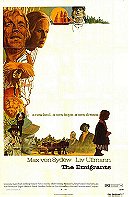
 77
77
 7.7
7.7
 8
8
